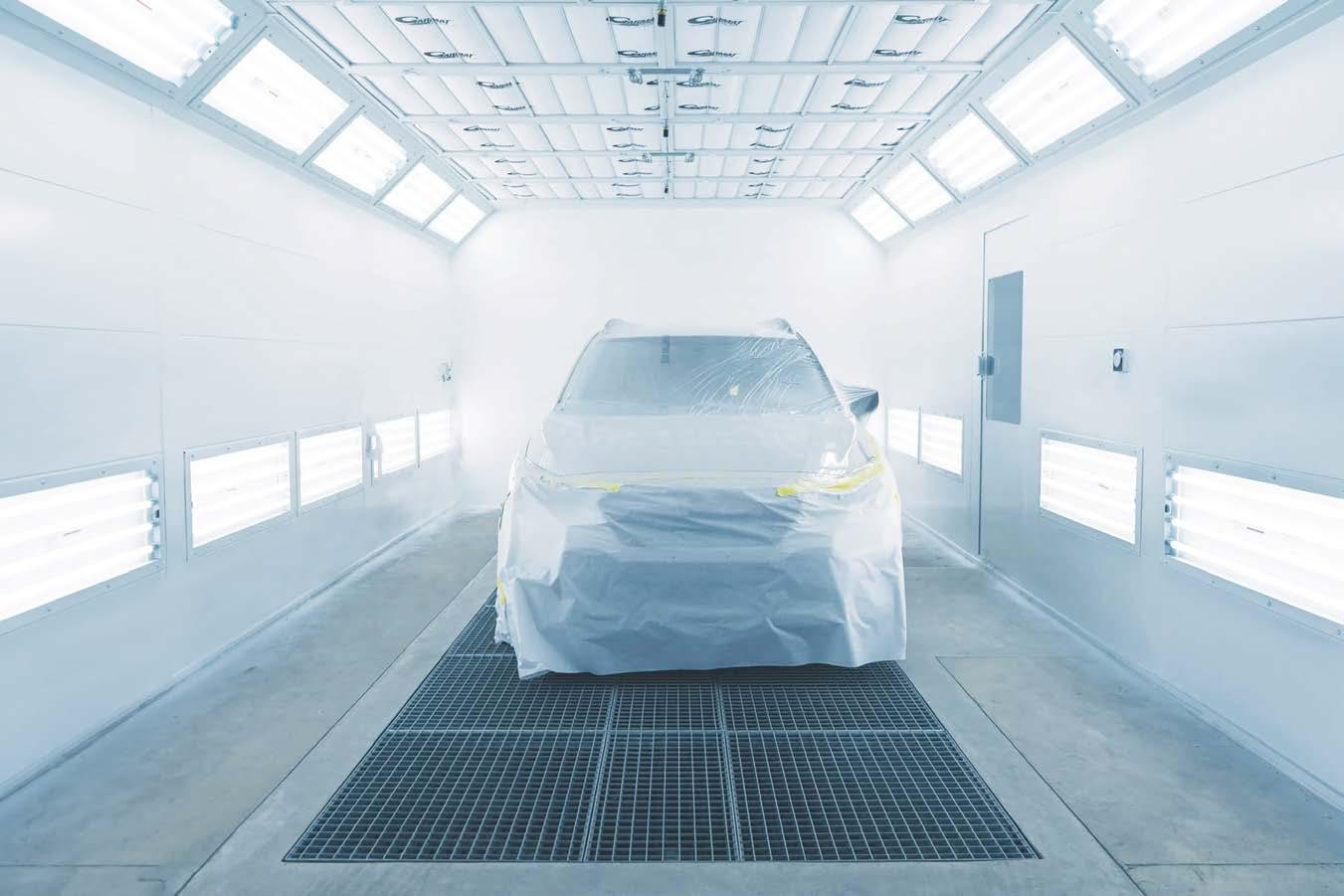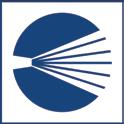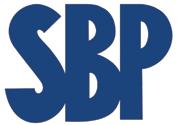




Drivers are finding themselves at the mercy of their own vehicles’ data-sharing capabilities, leading to unexpected hikes in their car insurance rates, according to a report from the New York Times.
granular driving data. This data, which includes trip durations, distances and driving behaviors like hard braking or rapid acceleration, is used to formulate a risk score for insurers.
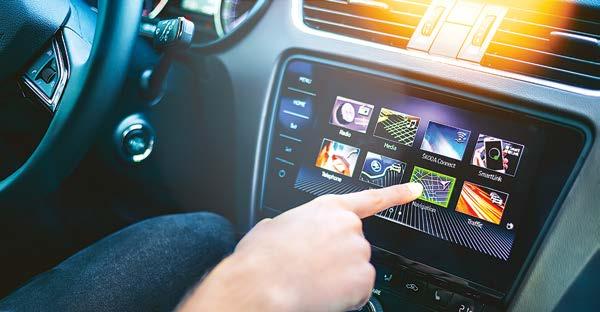
Kenn Dahl , a Seattle-based software company owner who drives a Chevrolet Bolt, encountered a bewildering 21% increase in his car insurance premium, despite a clean driving record. The root cause was a detailed data trail of his driving habits, unbeknownst to him, shared by General Motors with LexisNexis, a global data broker.
Dahl’s experience illuminates a growing concern among vehicle owners about privacy and consent. LexisNexis, under its “Risk Solutions” division, traditionally monitored vehicular accidents and violations but is now into analyzing
This practice, while enhancing personalized insurance offerings, raises questions about transparency and consent. Many drivers, like Dahl, are unaware of the extent of data collection and its implications on their insurance costs.
Dahl got quotes from other insurers and found they were also high – the LexisNexis data had been shared with eight insurance companies.
“It felt like a betrayal,” Dahl told the New York Times. “They’re taking information that I didn’t realize was going to be shared and screwing with our insurance.”
l
ON PAGE 20
The recent implementation of Illinois House Bill 3940, known as the Multiplier Act, has elevated the earnings of skilled auto mechanics and technicians across the state, by effectively eradicating the previously existing pay disparity between warranty and non-warranty vehicle repairs, found a new study by the Illinois Economic Policy Institute (ILEPI) and the Project for Middle Class Renewal (PMCR).
Prior to 2022, a glaring discrepancy in compensation existed within Illinois’ car dealerships, where technicians working on warrantycovered new vehicles received below-market rates compared to their counterparts handling nonwarranty repairs. This two-tiered
compensation system not only undermined the earning potential of these skilled workers but also contributed to a pronounced labor shortage due to high turnover rates.
Garnering widespread bipartisan support, HB 3940 was approved with an 85-24 vote in the House and a unanimous 58-0 vote in the Senate. Its enactment at the beginning of 2022 ensured automakers would fully compensate warranty repair services at local dealerships at market-standard rates, aligning them with the compensation for non-warranty work.
“This bipartisan law removed the two-tiered compensation system
l CONTINUED ON PAGE 6
Two Missouri residents were sentenced March 6 in federal court for their roles in orchestrating an insurance fraud scheme, staging car accidents to swindle more than $1 million.
Michael Lee Gene Stapleton , 37, and Latoya Marie Brown , 37, both of Columbia, MO, entered guilty pleas in 2023. Stapleton admitted to two counts of aiding and abetting mail fraud and Brown to charges of conspiracy to commit wire and mail fraud. Stapleton
l CONTINUED ON PAGE 18 REGIONAL NEWS
was sentenced to four years and three months in federal prison without parole and ordered to pay $166,363 in restitution to his victims. Brown was sentenced to four years in federal prison without parole and ordered to pay $72,069 in restitution to her victims.
Their actions were part of a larger conspiracy, led by Lawrence Courtney Lawhorn , 36, of Kansas City, MO, from June 2017 through July 2020, that targeted six
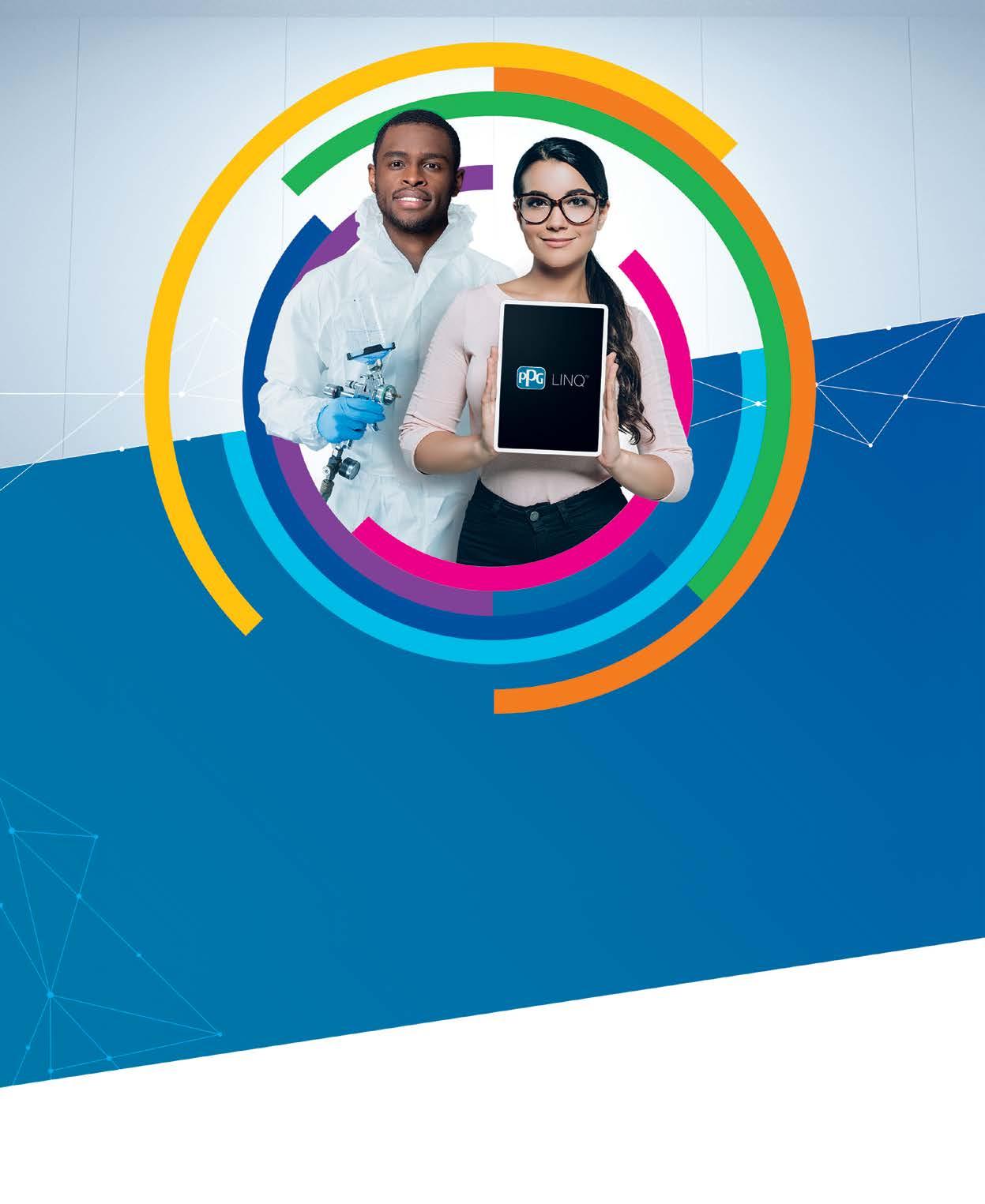
One can’t-miss way collision shop owners can find some potentially great business ideas is to ask other shop owners about changes they’ve made recently. Understanding what prompted the changes, how they were implemented, and what the outcome has been can help inspire changes within your own shop.
Here’s a round-up of changes some collision business operators have made in past year or two.
Tiffany Silva of Accurate Auto Body in Richmond, CA, points to staffing changes she’s made at her 25-employee shop that are enabling her to better “work on my business,
same time. So I always have a backup person.
“I like to [quality control check] every vehicle before it leaves my shop, but that’s not always possible,” Silva said. “So having a production team gives us someone based behind the computer, someone out on the shop floor directing traffic, and someone who can always QC vehicles for me. It’s been working out great.”
Sue Black, who co-owns Dean’s Auto Body in Sheboygan, WI, with her son, said she has eliminated some direct repair programs and negotiated new labor rates with some insurers.
“We have been able to work on that and really pay our technicians what they deserve to be paid so that we can retain them and also train them and keep them qualified to repair the vehicles coming to us,” Black said. She said the shop also has started to sometimes charge customer co-pays.
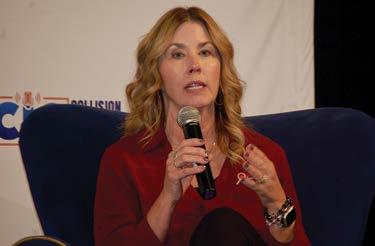
not in it.” She promoted an existing employee to assist the shop’s production manager, and added a third person to that team in a role she’s calling repair planner.
“She’s helping with [locating] and emailing procedures to the techs and making sure everybody has everything they need to get right on that job, and helping with scheduling,” Silva said of the new hire, whose cousin is a longtime employee at Silva’s shop. “She just graduated [from college] and needed some direction, so we brought her in.”
Despite not knowing anything about the industry, the new employee is “into technology and she can figure out anything we need,” Silva said. “She’s doing all our pre- and post-repair scanning, and arranging the calibrations done by an outside company.”
The employee promoted to assistant production manager had worked in both the paint and body departments at various times while at the shop, “so he’s respected by the entire team,” she said. “They are tag-teaming production. He’s done everything excepting estimating, so he’s learning CCC, and they know they can’t both be on vacation at the
commercial work.
“Because we’ve got a couple accounts now that we’ve groomed in the last couple of years to pay a sizably higher labor rate,” Ricci said.
“We basically made some decisions on what is our fight and what’s not our fight.”
WILL LATUFF LATUFF BROTHERS AUTO BODY
Like Silva, he’s also made some management personnel changes that have been “very fruitful for morale and production.” He came to realize his production manager “wanted to play fireman, but we didn’t want fires,” so he promoted another person to that position. One of the shop’s three estimators now oversees that team and works with the production manager.
“So that removed me a lot more from the day-to-day,” Ricci said. “But
they can see the transactions and what goes on when a supplement is submitted, really lets them know how hard you’re working for them, to get them taken care of.”
The transparency helps keep customers up to date, he said.
“We give them copies of what was submitted [to the insurer], letting them know the deficiencies when it comes back, letting them know what their potential out-of-pocket could be,” Latuff said. “They see we submit a repair plan that’s vastly different than the photo estimate the insurance company created, and it comes back with an initial difference, which is usually pretty large, but by the time we get down to the final bill and the gap is reduced substantially, you’re the hero. They’re happy for everything that you did throughout the repair.”
“We’ve just explained to them: This is what your insurance company is willing to pay for the repair of your vehicle, but here is the research that says that this, this and this needs to be done on your vehicle, and we want to make sure that your vehicle is getting back on the road properly, and in order to do that, you might have to pay some out-of-pocket expense,” Black said. “And because we sit down and really explain the situation to our customers, a lot of them are willing to pay extra to have their vehicle repaired the correct way.”
She said the most common co-pay is to cover the use of OEM parts.
“Consumers really don’t know when they’re buying an insurance policy, what that policy really all entails,” Black said. “I always explain to my customers that the insurance companies are qualified to sell insurance, but we’re qualified to repair your vehicle. I wish we could work together with the insurance companies to really create a safe policy for our consumers to have their vehicles repaired the proper way.”

it also increased production because of the right attitude of the right two people, as co-managers.”
Will Latuff, president of Latuff Brothers Auto Body in St. Paul, MN, said his company is another one that has “parted ways with several DRPs.”
“We basically made some decisions on what is our fight and what’s not our fight,” Latuff said. “And
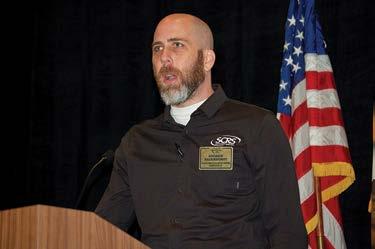
Tom Ricci, owner of Body & Paint Center in Hudson, MA, said he’s been pursuing more non-insurance
I think it’s actually helped us support the consumer more. Because keeping them more involved and more updated, and peeling things back so
As the manager of Pacific BMW Collision Center in Glendale, CA, Andrew Batenhorst said parts delays can be significant for BMW parts out of Germany.
“Anything that’s coming from that side of the world is four to six weeks away in some cases,” Batenhorst said. “So what’s been really helpful for us is being very aggressive with how we triage or job sort, deciding what cars are going to come into the shop, and which ones we will keep on the road as long as possible. So on certain job sizes, we can do a quick inspection on them, maybe loosen up the bumper or use an inspection camera to check out possible hidden damage, and we can get a repair plan that’s maybe 85% to 95% of the way through. We can get the parts pre-ordered and arrived, and we can cut the repair time down immensely because we’ve maybe also gone through a supplement approval at that point, too.”
He said one hurdle with this is the amount of space involved in storing more pre-ordered parts than they have in the past.
“So we’ve adapted our logistics to be able to handle it, and it’s worked really well,” he said. “We’ve had a lot of positive feedback from clients. If the car’s just cosmetically damaged, then they’re typically okay with us doing that for them. Now, if it’s not drivable, we’ll have to go ahead and get the car in. But for probably 40% to 50% of our work, we can minimize the downtime here, and it does pay off in the long run.”
With a waterborne basecoat that’s easy to mix, match and apply and that uses the same coat flash application you’ve already perfected, Cromax® EZ makes an exceptional finish feel effortless. Discover how easy an outstanding finish can be.
axalta.us/ez

Workers at a critical Toyota plant in Troy, MO, have launched a public campaign to join the UAW after more than 30% signed union authorization cards. It is the first Toyota plant and the fourth nonunion plant nationwide where workers have gone public with their campaign to win their union.
In a new video, “We Keep Toyota Running,” workers at the plant –which makes the cylinder heads for every Toyota engine made in North America – describe the toll of the work on their bodies.
Dawn Ellis, a worker featured in the video, tore her rotator cuff on the job, a common injury at the plant. She had surgery on a Friday and, in a common practice at the plant, was ordered to report to work the following Monday. In a separate injury, Ellis suffered a fractured skull and has struggled with migraine headaches ever since.
“The plant is not safe,” said Jaye Hochuli, a team leader at the plant. “They had me crawl under a deck to clean out the sand and silica dust and chemicals that come out of the machines. It was a confined space. I should’ve been in a respirator and a
and ensured that automakers fully fund warranty repair services at local dealers,” said ILEPI economist and study co-author Frank Manzo IV . “By bringing pay for warranty work up to the same market standard for non-warranty work, the law has generated positive economic impacts across Illinois.”
The study used a range of data sources, including the U.S. Census Bureau and the U.S. Bureau of Labor Statistics, to draw comparisons and assess the law’s impact. Findings revealed a substantial $143 million annual increase in worker earnings within the state’s auto dealerships, coupled with a 9% reduction in employee turnover. The law has also been instrumental in boosting Illinois’ economy by more than $300 million and generating upwards of $40 million in state and local
hazmat suit. All they gave me was a KN-95 mask. I came home and that dust was in my hair, on my clothes, in my underwear. How can the richest car company in the world not follow basic safety practices? We’re organizing to fix what’s wrong and win the protection we need.”
over $4 an hour less than their UAW counterparts.
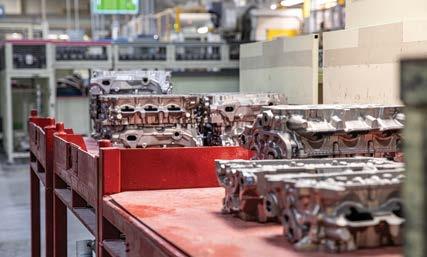
Wages at the plant are far below the rate that UAW members make in equivalent Big Three facilities. Even after Toyota increased pay in response to last year’s record UAW contracts – the “UAW Bump” – production workers in Troy make
tax revenues annually, all without imposing any financial burden on Illinois car owners or taxpayers.
“The data shows that this bipartisan law fixed a manufacturers’ defect and delivered wins for local businesses, skilled mechanics and taxpayers,” said University of Illinois professor, PMCR director and study coauthor Robert Bruno , Ph.D. “Its effectiveness should encourage the State of Illinois to strengthen educational and enforcement efforts and other states to consider enacting their own warranty parity policies.”
At least four other states have enacted similar warranty parity laws. California, Wisconsin and Montana had laws prior to 2023, while Minnesota became the newest state with a policy in October 2023. Other states, like Colorado and Texas, have also introduced bills to end the two-tiered compensation system in automotive repairs.
“Seeing the new contracts with the Big Three, that’s when I realized we needed a union,” said Charles Lashley, a team member in support. “It was incredible that UAW members could bargain for those benefits and that pay. I don’t see why we should be paid differently. Toyota makes more money than all the Big Three. So, there’s no reason why we should be so far behind. The company can’t run without us. We should get paid like it. We can by organizing our union.”
“When I was hired two and a half years ago, I came in with 24 people. I’m the last one left,” said Jessica Clay, a team member in die changes. “The overtime we worked was too much. Overtime now isn’t the problem it was, but there’s still
no sick time. We still have to use PTO [paid time off] during shutdowns. I came from Ford; I came from UAW. The union was a better fit for your life. In our union, we have more control. We have a better life.”
“The company has a slogan they like to use: One Toyota,” said Jarred Wehde, a production team member. “We’ve got the Toyota sign out front, just like they do in Kentucky and Indiana. But our pay is nowhere near what theirs is. We know what the company makes. We know they can afford to pay us. By organizing our union, we can win our fair share.”
The announcement marks the latest major breakthrough in the national movement of nonunion autoworkers organizing to join the UAW in the wake of the historic Stand Up Strike victory at the Big Three auto companies. More than 10,000 non-union autoworkers have signed union cards in recent months, with public campaigns launched at Volkswagen in Chattanooga, TN, MercedesBenz in Vance, AL, and Hyundai in Montgomery, AL, while workers at more than two dozen other facilities continue to organize.
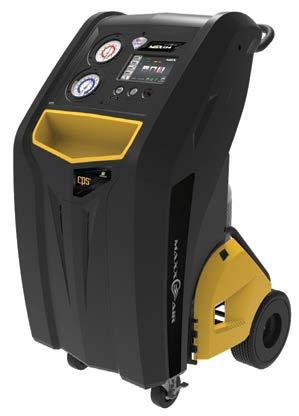

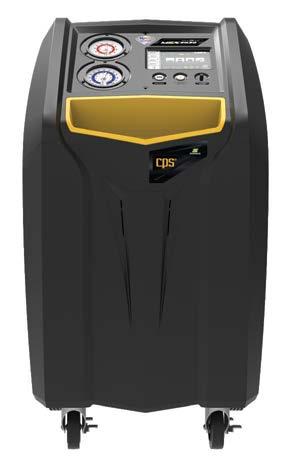
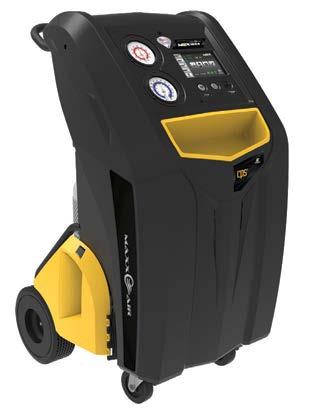



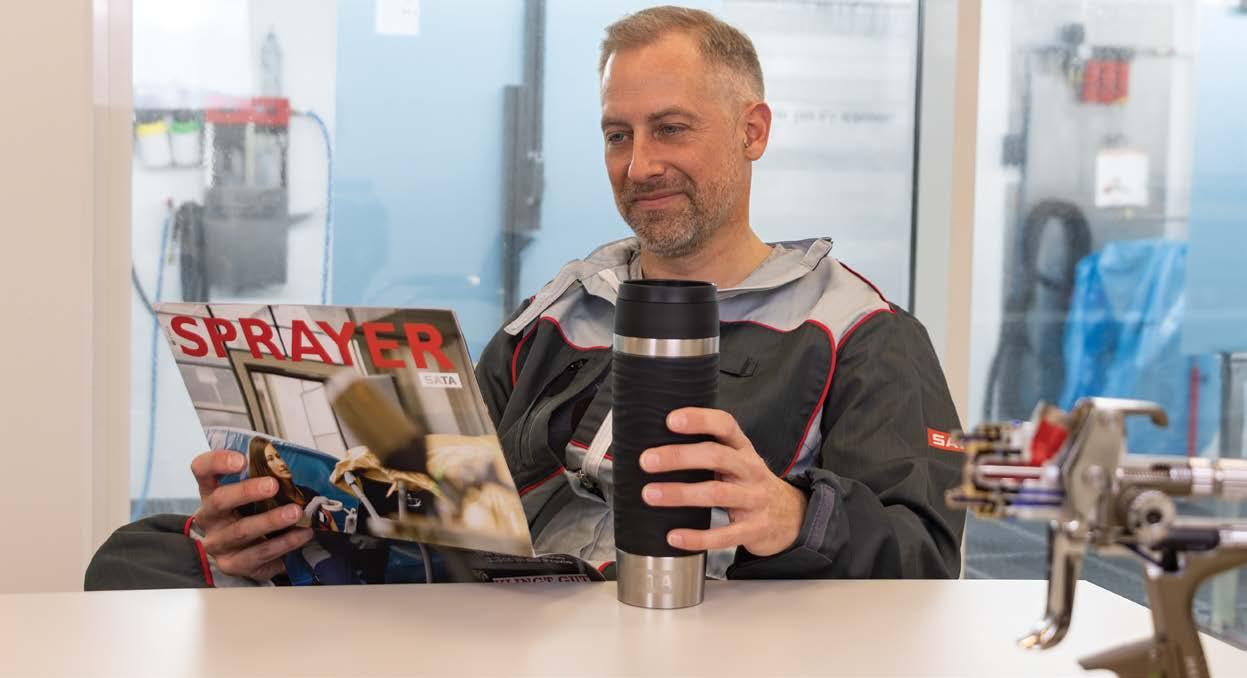

In an effort to highlight the cost – to shops, insurers, consumers and automakers – of poor-quality collision repairs, the Collision Industry Conference (CIC) Industry Relations Committee earlier this year shared the findings of its study of 26 “relatively late model” vehicles for which significant repair problems were found during post-repair inspections around the country.
In all of the cases, the customer found something they didn’t like about the repair, and therefore had a reinspection done. More than 90% of the 26 were deemed total losses after the post-repair inspection, said Daniel Rosenberger of BASF, a committee member.
“About 50% of them had moderate to severe frame issues that were unaddressed,” he said.
For the subset of the vehicles for which repair cost data was collected, he said, the cost for re-repairs averaged 3.5 times the initial repair cost.
Committee member Erin Solis shared photos and details related to one of the vehicles, a 2016 Subaru WRX for which original repairs cost about $7,000, and the cost for rerepairs was pegged at about $18,500.
“The customer originally went to the [second] shop [after repairs] for some masking lines, some paint matching issues and stuff like that,” Solis said. “The shops doing these post-repair inspections get a copy of the final bill of what was done originally. So they noticed [the original repairer] had billed for framework, yet there was no evidence of any kind of clamping marks or anything to indicate that the vehicle had been up on a rack, or even measured, or pulled properly. The steering column was also not addressed as instructed in the OEM procedures for post-collision. And I believe that this [repair invoice] did not indicate any kind of post-collision inspection requirements, so it was more than just the steering column. And then there was a lot of fitment issues with some of the parts that were used in the repair.”
The committee said there were similar problems found with many of the vehicles.
“Obviously starting with paint flaws, the lack of pre- and postrepair [safety] inspections was prevalent, lack of a pre-alignment or a secondary alignment after the repairs were done, calibrations just
simply overlooked,” committee member Ron Reichen said. “Failure to recognize OEM repair procedures and following a defined process throughout. There were numerous components that were marked on the repair plan as replaced that were either not replaced, or repaired or just simply overlooked. So that’s a lot of what we saw.”
were made under a direct repair program, but she noted, “I can tell you that all of the ones that I personally went through were not fixed in an OEM-certified repair center.”
But Stein said no one should think poor quality repairs are a problem limited to only DRP shops, uncertified shops or MSOs.
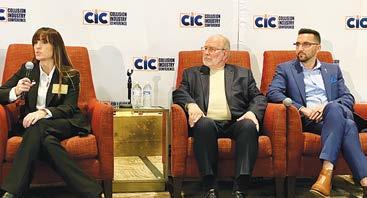
“One job that I was alerted to was a certified shop that left [broken] glass in the back seat and in a [child] car seat, and thought that that was OK, that that was acceptable,” Stein said. “This is a certified shop. So I’m just saying this is a universal problem. It’s easy for us to throw stones, but this is a problem that we are having all over the board. And a good shop can make a mistake. And if you don’t have consistent quality processes
“They were all repaired
and a quality control system lined out, then you’re playing Russian roulette every time.”
She offered the solutions to the issue of poor quality repairs include a robust quality control system in place at shops.
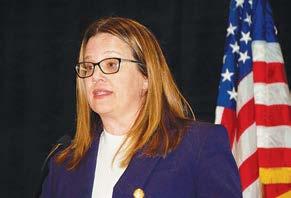
“Making sure that, no matter what, your people are empowered at any point in the process to stop and say, ‘Hey, wait a minute, this isn’t right,’”
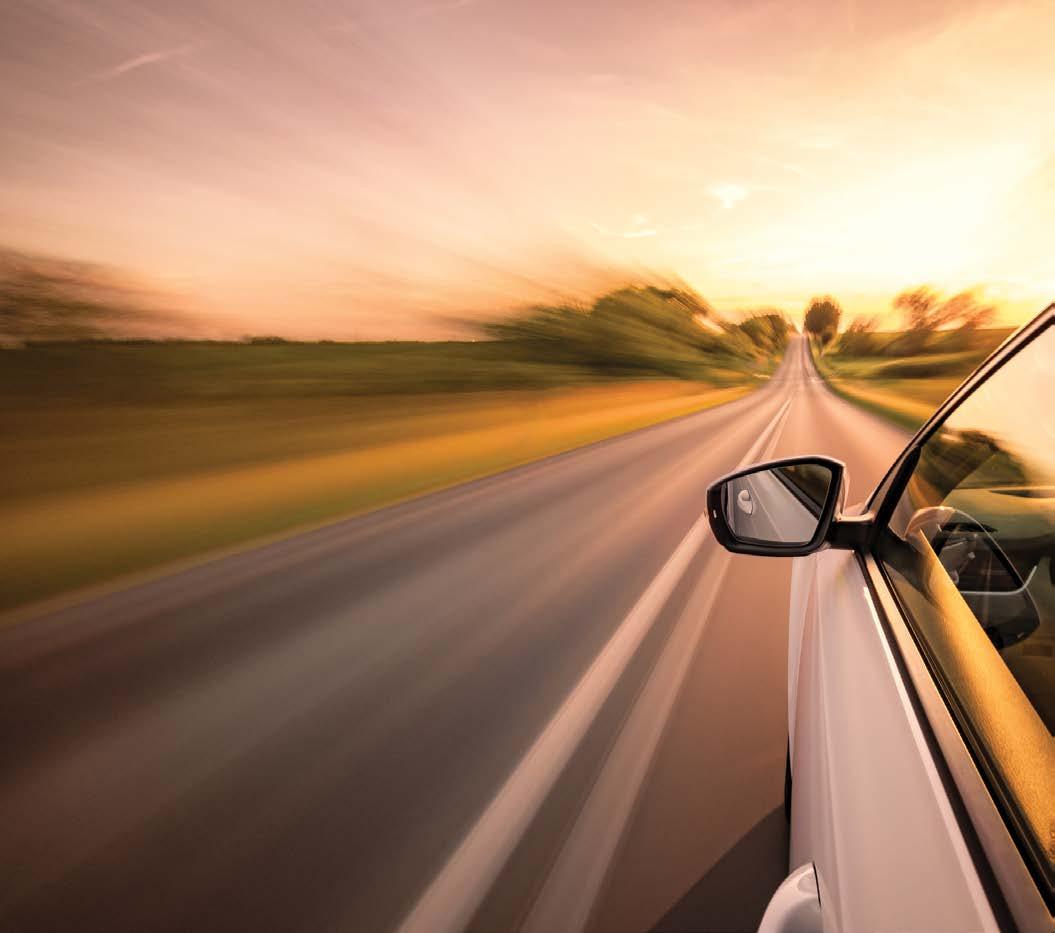
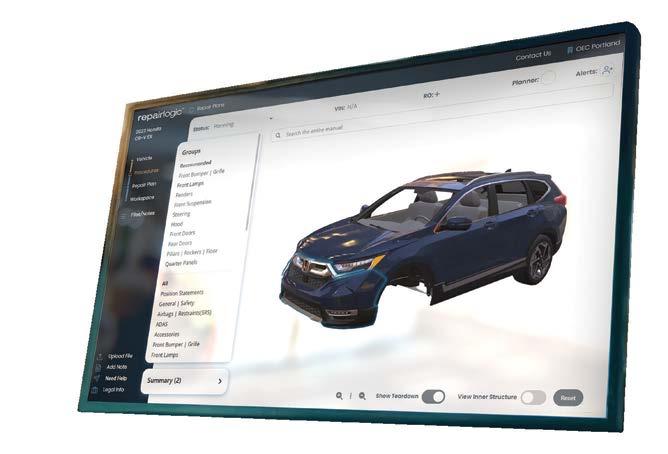
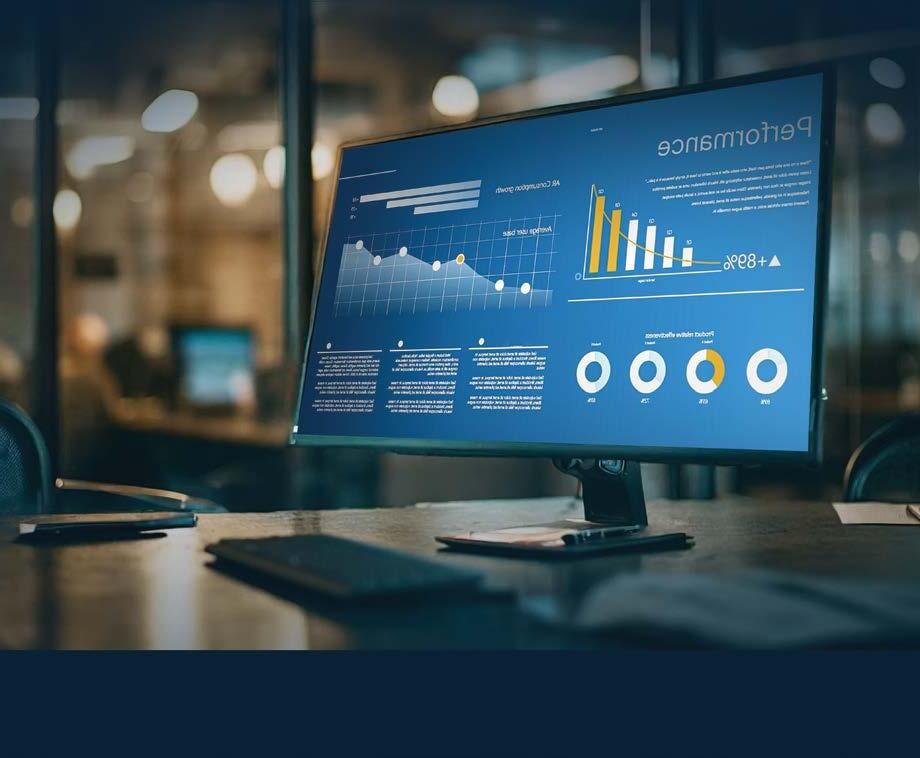

Download the Repair Planning Field ReportV3
Discover the ways RepairLogic is improving repair safety by helping repairers adapt to Electric Vehicles and track OEM procedure changes.

What are you waiting for?
 Mike Anderson
Mike Anderson
Earlier this year, a collision shop owner shared a story with me about something he experienced at his shop that really surprised me. Since it involved a common situation – a vehicle sitting in the shop’s lot crashwrapped because of a broken sunroof – that led to additional damage to the vehicle, I thought I’d share his story as a caution to the rest of the industry.
Kris Wyatt said the truck was in the lot of his shop, Wyatt’s Paint & Body in San Bernardino, CA. It rained shortly after the truck was crashwrapped, and then a few days later, the sun came out.
“The rain had gathered in the crash wrap, creating a small pool of water,” Kris told me. “Then the sun shone through that water, which acted like a magnifying glass. That actually burned the seat and the door trim panel. I would never have thought this would happen.”
As Kris joked, the crash wrap did its job by keeping the water out, but, man, that combination of the pool of water and the sun did a number on
the interior of the truck. It might be a one-time freak occurrence, but it’s a situation you might want to warn your employees to keep an eye out for.
I want to thank Kris for sharing this with me, and if other readers have experiences that might be helpful for
other shops to know about, send them to my assistant, Tiffany Driggers, at tiffany@ collisionadvice.com, and she will get them to me.
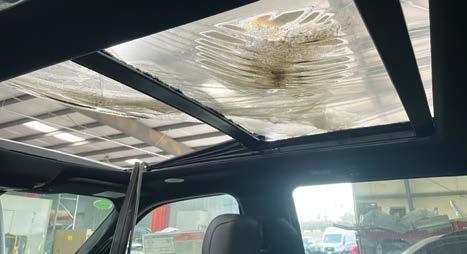
“That actually burned the seat and the door trim panel.”
KRIS WYATT ATTRIBUTION ATTRIBUTION
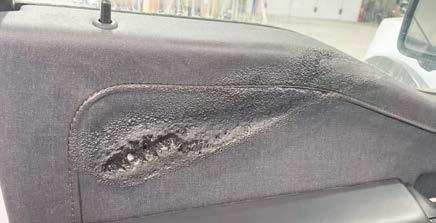
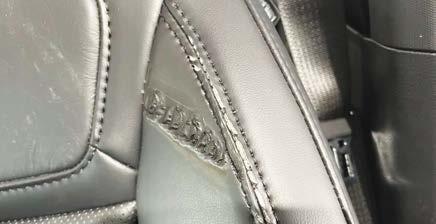
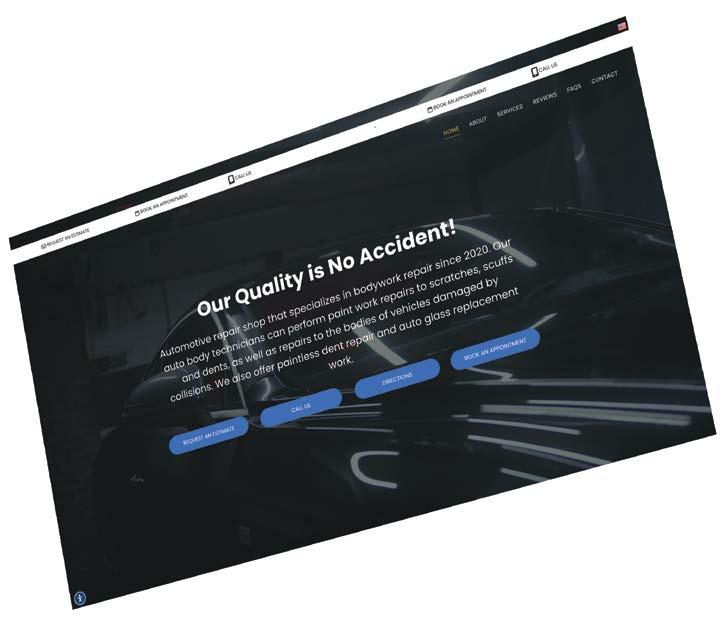
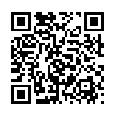
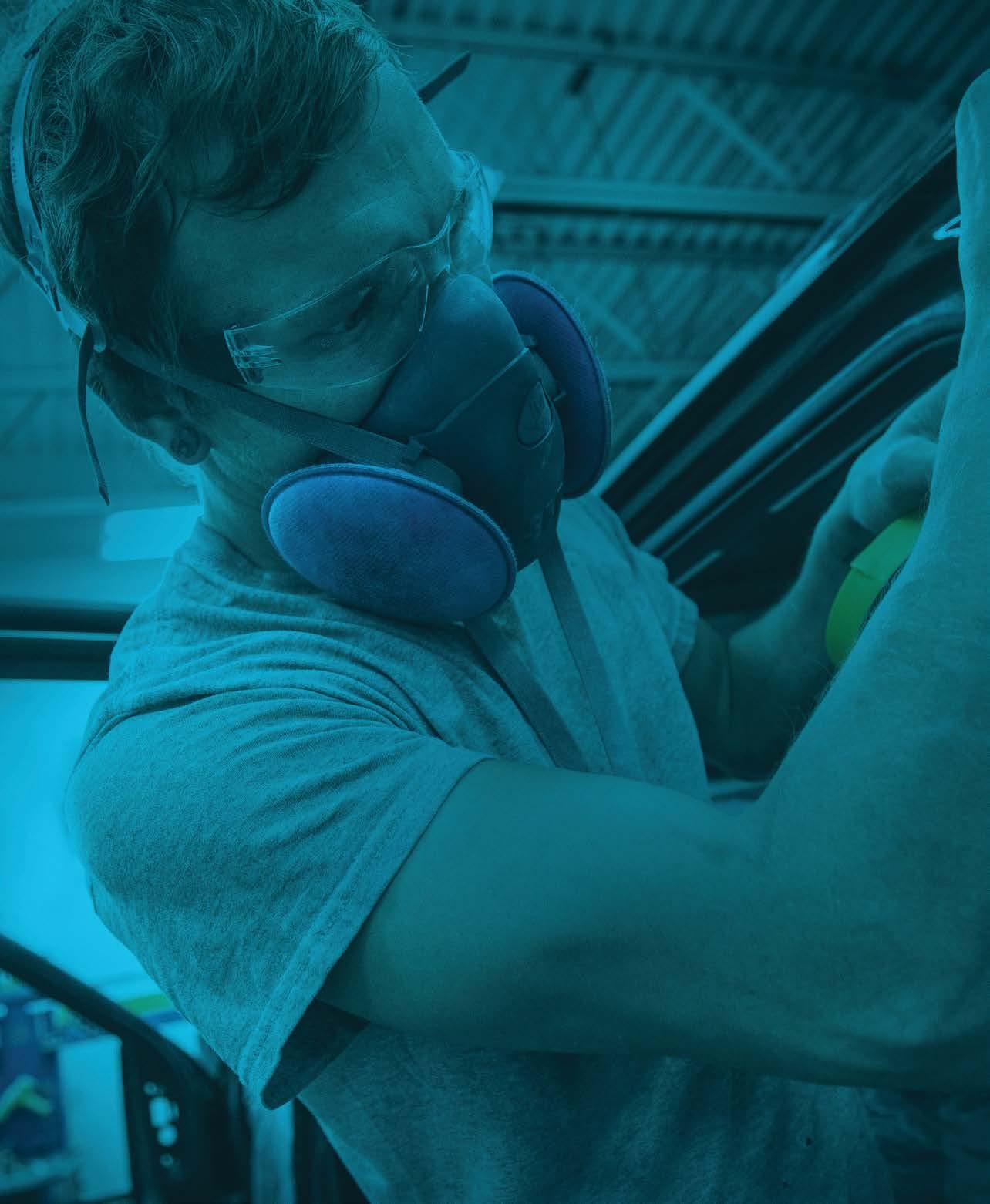
HAVE YOU THOUGHT ABOUT SELLING, BUT DO NOT WANT TO SELL TO A CONSOLIDATOR?
ABRA (Auto Body Repair of America) has local independent owners in your area, looking to buy. Connect with Lori today to learn more at Lori.Kroeger@drivenbrands.com
The collision repair industry should embrace new technology to improve collaboration between repairers, insurers, parts distributors and customers, according to Mike Anderson, who presented “Embracing Technology to be Successful in the Collision Industry,” a CIECA webinar on Feb. 22.
A replay of the 47-minute presentation is available on CIECA’s YouTube channel.
Anderson is a former Virginia-based MSO owner, who now owns Collision Advice.
Anderson said the collision repair industry lags behind many others in using technology, and he thinks it boils down to a lack of trust.
“Let’s talk about what can be accomplished if we had full transparency and trust between all stakeholders,” he said.
Consumers
Shops need to ensure customers’ personal identifying information is erased from total loss vehicles before they go to a salvage yard. Anderson said he is also concerned about how often he sees shops sharing pictures on social media that show a vehicle’s license plate.
“I appreciate techs want to post the quality of their work but at the end of the day, it’s about consumer privacy,” he said.
Anderson said it might be time to rethink the customer survey experience. Customers in a recent focus group reported “survey fatigue”: after filling out one survey, be it from the rental car company, insurer or shop, they tended to feel more negative toward the rest.
“Do we need to have all these different entities doing surveys, or can we just agree on one common solution that can be accepted by all parties?” Anderson said. “We have to ask ourselves if we want to continue with surveys, or are online reviews going to be the survey of the future?”
Anderson said technology can make shops “available” 24/7 to receive estimate requests or schedule an appointment, through their websites or Google business listing. An AIpowered chat feature could be used to answer questions, or to answer calls for a tow.
According to a recent “Who Pays for What?” survey, only 31% of shops
research OEM repair procedures “all the time” and 29% “most of the time.” Anderson said the most common reasons for not doing that are “I don’t have enough time” followed by “I don’t know how.” Neither are acceptable excuses, Anderson said.
The industry should embrace solutions that allow a vendor to export an invoice back into a shop’s management system, Anderson said.
“There are some management systems do that today but the problem is on the wholesale parts department

“That’s very scary for me on behalf of the consumer,” he said.
However, he acknowledged, there can be 300 to 400 documents to research just to replace a quarter panel.
“We need to use technology to figure out how can we speed up this process,” Anderson said. “I would like to see technology that can figure out the difference in estimates when a collision repairer comes up with one figure and the insurance carrier or third-party payer comes up with another.”
Another issue is the fact onetime use parts are not identified in electronic parts catalogs, only in electronic service manuals or repair procedures, so estimators must look up those parts separately.
“OEMs could supply info to thirdparty estimators to find symbols or words like ‘replace’ or ‘discard,’” Anderson said “I have to believe technology could do that.”
AI can be best put to use by giving it a shop’s historical data to figure out its optimum Work in Progress (WIP), to streamline the scheduling process to increase throughput.
“Listen, throughput benefits everyone,” Anderson said. “But what’s holding us back is getting down to trust – between other software companies, equipment companies. We all need to learn how to play in the sandbox together.”
Parts Departments
Estimating systems are not 100% accurate at identifying one-time use parts, Anderson said. Improving that would help parts employees so they don’t have to research them.
A focus group of about 40 field appraisers working for a top 10 carrier said they would appreciate, when they get an assignment, being told details like there are dogs at the customer’s house.
They also said they want the ability to figure out electronically the difference between their and the shop’s estimates, because it takes a lot of time to do so manually.
Anderson said shops buy parts from their jobber or distributor in as many as 13 different “buckets,” double the number from eight to 10 years ago.
“We need to talk about how we reclassify some of these things, what is actually paint materials and what is not,” he said.
side – if there’s a part that’s not ordered from me, that throws the whole system out of whack. Let’s stop the madness,” he said.
He also suggested a website where a shop’s accounting department could go to find a missing parts credit, instead of having to spend time on the phone tracking it down, and programs to show inventory at the warehouse so repairers can make more accurate decisions on when to schedule a vehicle.
Anderson suggested getting dealership accounting software companies involved in CIECA, so they can see how to make it integrate with body shop management systems.
There is also no software system for the industry specific to HR. Anderson, who conducts OEM certification training, said he often gets emails from shops whose technicians’ certifications are near expiration and need to get them in a class on short notice. A program could auto generate reminders to update certifications.
Software systems could also provide a more modern onboarding experience to anyone who comes to work in the industry.
Shops want wholesale parts distributors that accept electronic parts ordering, process credits in a timely manner, have good inventory, great communication and the ability to scrub parts order by VIN, Anderson said. Dealerships also want electronic parts ordering, as well as distributors that pay bills on time and have minimal returns.
“Electronic is the common theme,” Anderson said.
There is a need for a program to streamline the process to write a repair estimate for a vehicle damaged during transportation, Anderson said.
OEMs also need to get the electronic parts catalog division to talk to the electronic service manual division so one-time use parts are identified, then push that to estimating systems.
A lot of shops are purchasing OEM scan tools but not getting the training to use them properly, Anderson said. Online training on using those tools would be helpful.
Anderson said technology could be used to automate updates for equipment, as those can be critical to consumer safety. Network management tools could push out notifications to update equipment as needed.
“Software can be used for the good of the industry, to save people time and give them quality of life and a better consumer experience, it can be used to ensure safe and proper repairs and increase profitability,” Anderson said.
Anderson acknowledged technology comes with questions, like the morality of using parts pricematching software or the risk of data pumps that report estimates to vehicle history report generators like CARFAX.
“I just want to help everyone in our industry so that their team, or your staff, has a better quality of life,” he said. “The key to that is what can we do to help our industry go back to where people trust each other again? Let’s use technology to help our industry keep up with others.”
Ever wish you could do OEM quality spot repair without the need to mix or activate 2K and waste expensive materials? Dream no longer, Car-Rep’s revolutionary Wise 2K® aerosol paint technology delivers a 2-component smart repair solution requiring no activation or mixing. More importantly, and unlike the traditional 2K systems it offers a revolutionary unlimited pot life. This isn’t just good news for waste reduction; it’s a game changer in expediting your workflow and reducing material costs while achieving OEM quality results.
Car-Rep’s patented Wise 2K® technology features a deactivated hardener and the resin packed in the same compartment. The 2K reaction happens when the product is sprayed: first the hardener activates when it meets humidity in the air and second, the components crosslink. With no reaction in the can you can use all the contents without the worry of product waste. Car-Rep’s 2K Smart Repair System feature both epoxy and polyurethane technologies, and create a great opportunity to eliminate 1K aerosols which do not meet OEM performance standards.
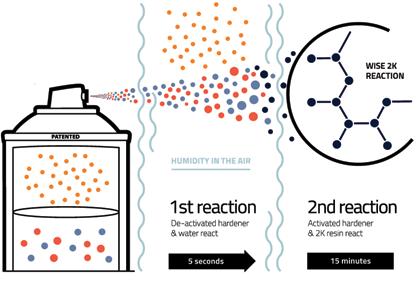
“You must apply 2K epoxy to all bare metal surfaces prior to applying any seam sealer, body filler, or other refinishing products,” mandates Honda similar to all OEMs. Car-Rep 2K Epoxy Primer Sealers and eCoats provide optimal corrosion protection and adhesion. They are ideal for use on any bare metal (exterior skin or inner structures), between spot welded panels (Weld Thru), as a sealer before base coat or urethane primer as well as under seam sealers and body fillers.Since sanding is not needed and recoat window is 48 hours Car-Rep® 2K epoxies are ideal for reducing booth bottle necks and maximizing efficiency in shop operations without sacrificing OEM quality.
As the first and only 2K epoxy aerosol eCoats Car-Rep® 2K truly deliver the performance to match the original factory ecoating. Available in 5 original manufacturer colors and sheen these eCoats are like powder coating in the can and make it possible to do fast spot repairs on the shop floor without sacrificing quality or value.

Featured in the builds of John Wargo at SEMA 2022 and 2023 Car-Rep® 2K Epoxy DTM Top Coats are quickly becoming the top choice for custom builders and painters. With single stage application on practically all substrates these 2K epoxies are ideal for chassis refreshments, engine bays and suspension parts as well as replacing 1K trim paints in a single-stage application. Car-Rep 2K top coats make it easy to achieve scratch, corrosion, chemical and UV resistance with strong adhesion.
Still using 1K Clear for spot repair or quick check for spray outs? Car-Rep 2K Polyurethane Clear Coat with unlimited potlife delivers a professional and realistic solution for spray out cards, small parts, door jambs, mirror covers, headlight restoration and more.
Car-Rep®’s 2K Smart Repair System transforms collision repair shops for the better. The advanced solution contributes to a more efficient workflow, allowing for less expensive, quicker and more effective repair completion. This increase in efficiency doesn’t just mean happier customers due to faster service; it also means a higher volume of jobs completed without compromising on quality.

As International Women’s Day is celebrated March 8, Jerry’s Abra , located in Mankato, MN, serves as a role model for traditional male-oriented business who want to attract and retain great women. Under the leadership and guidance of one of the collision repair industry’s legends, Geralynn Kottschade , Jerry’s Abra has provided a vibrant culture and environment for several women to enter and grow in the field for many years.
Jerry’s Abra opened Oct. 15, 1971, and today, the facility is still owned by Jerry and Geralynn Kottschade, who just retired. Their daughter, Laura , has become the second-generation owner. The family works side by side with 35 well-trained, dedicated and conscientious coworkers.
Laura carries on the Golden Rule business philosophy the Kottschades built their business on – treat your customers and business partners like you would want to be treated. Jerry’s Abra has gone through many changes over the last few years
but has continued serving the community. And Laura’s mother’s legacy of championing women in the industry continues, as well.
Leah Slette grew up around the automotive industry and put that experience to work in dealerships before joining Jerry’s Abra.
“My dad was a frame and alignment specialist in the auto body world,” Slette said. “An opportunity presented itself on the dealership side where I was working in the warranty and service departments for years before switching to the other side of the automotive world and following in his footsteps. It’s empowering, for the most part, having knowledge within an industry that used to be viewed as more of a man’s line of work. Sometimes you’ll still get a male customer that will only work with a male as they feel they are the only ones that know what they’re talking about when it comes to cars and trucks. But I feel like having women behindthe-scenes and as the customerfacing representative of the
business is very rewarding and a comfort to people.”
Kylie Slette , Leah’s daughter, followed her mother into the industry.
“I had been out of school for about six months and wasn’t sure what I wanted to do,” said Slette. “My mom also happens to work at Jerry’s Abra so she is the one who introduced me to the field. My favorite part about working here is the team of people. We have fun while working together, everyone is here to help each other out when needed, and I am always learning something new.”
Heather Hoffman was inspired to join the industry by her father, and aims to change the industry little by little.
“I grew up in the shop with my dad, it’s always been second nature to me,” said Hoffman. “I may not be back working on the vehicles but even just being in the environment is nice! I think I give things a lot more thought and pay attention to a lot more details than a male would. Females do pay attention to detail a lot more than males
The U.S. House Science, Space & Technology Committee’s Investigation and Oversight Subcommittee held a hearing Feb. 29 on the growing concern over electric vehicle fires, revealing the distinct and formidable challenges they present compared to traditional vehicle fires. The discussion emphasized the necessity for advanced research and specialized training for emergency responders to effectively tackle these incidents.
Subcommittee Chairman U.S. Rep. Jay Obernolte, R-CA, noted in his opening remarks that, “as the presence of these vehicles continues to grow on our roads, so does the threat and danger of the fires that they can produce. EV fires are fundamentally different from traditional internal combustion engine fires…EV fires burn at temperatures far hotter than regular vehicle fires. They produce copious amounts of toxic chemical gases.”
He added that, “when an EV either experiences an incident due to a manufacturing defect or is damaged in an accident, the battery that powers that vehicle often has a remaining charge,” which “provides
the fuel to keep a battery burning for hours, regardless of how much water is poured on it in an attempt to extinguish it. Unfortunately, the federal government has been deficient in providing guidance and resources…”
During the hearing, lawmakers explored potential solutions and preventative measures to mitigate the risks associated with EV fires.
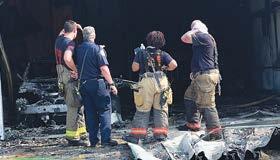
“I believe there are tremendous opportunities for scientific research to reduce these risks by advancing our understanding of why lithium-ion batteries react in these ways, how the design of lithium-ion batteries can be improved to lessen the risk of fires, and what innovative tools and techniques can be developed,” said
and we are a lot better at multitasking. I think having more women involved in the industry will help change the stereotypes little by little. Women are just as strong and just as good to work in a more ‘male-focused’ job. Women are fully capable of doing this job!”
Gwen Oldenburg has become a role model for the men with her attention to detail in the detail department.
“I was looking for a job with more consistent pay and hours,” said Oldenburg. “The detail position at Jerry’s Abra really fit what I was looking for. I really like the schedule and that I’m able to get direct feedback from the owner about my performance and what is going on in the shop. I feel that I’m often a bit more organized than the men in my bay. I also sometimes have a different viewpoint of why/ how a vehicle came to be in the condition it is in. I tend to be more detail-oriented about how the final product looks and think about how the customer feels when they get their car back.”
Ranking Member U.S. Rep. Valerie Foushee, D-NC.
Full committee Ranking Member U.S. Rep. Zoe Lofgren, D-CA, added, “as with any emerging technology, we need to make sure we understand and adapt to the unique challenges that arise from its widespread adoption… over the decades, we’ve developed best practices to extinguish internal combustion fires as safely and quickly as possible. Now, we need to give that level of attention and support to research into electric vehicles.”
Testimonies from experts like Dan Munsey, fire chief for San Bernardino County in California, highlighted the practical implications of EV fires. Munsey estimated a substantial $3 billion would be required to train all U.S. firefighters to effectively handle EV-related emergencies.
Dr. Judy Jevarajan introduced the idea of developing methods for remote access to vehicle data to identify and address potential risks, while also acknowledging the cybersecurity concerns associated with such solutions.
Automotive Service Association Board of Directors Chairman Scott Benavidez thanked the committee
for holding a hearing on this important topic.
“Independent auto repairers simultaneously constitute one of the groups most adversely impacted by EV fires, yet also one of the groups in the best position to help address them,” Benavidez said. “There are numerous instances in which damaged EVs have caught fire and caused damage to the repair facility at which it was being held, as well as other vehicles in its vicinity. Due to these risks, repair shops are now encouraged to allocate space in their facility where they can isolate EVs for safe storage.
“At the same time, repairers possess high baseline expertise in automotive issues, which make us ideal partners for first responders trying to prevent or extinguish EV fires,” Benavidez continued. “ASA calls on the federal government to coordinate with the independent automotive repair industry in its efforts to address the growing concerns surrounding fires caused by EVs. Assuring that repair shops receive proper training to handle EVs safely should be a top priority for policymakers.”















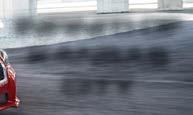
















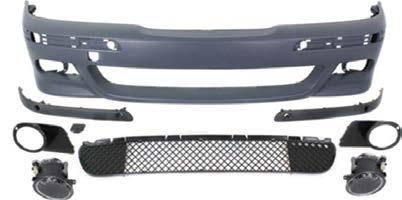
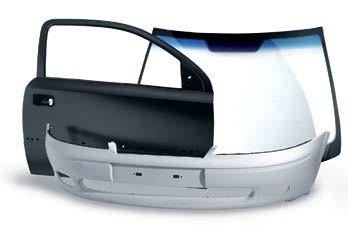
Workers at two auto suppliers’ plants in Michigan have voted to join the United Auto Workers.
On Jan. 30, nearly 400 workers at Antolin Interiors USA in Howell, MI, voted overwhelmingly to join UAW Local 163, Region 1A. The workers, who make instrument panels and door panels for Ford, GM, Stellantis and PACCAR, launched their organizing drive last October.
More recently, on Feb. 20, the 100 employees at GNS North America in Canton, MI, voted to join UAW Local 900, Region 1A. These workers make hot stamping and conventional stamped parts for GM, Tesla and Stellantis. This includes structural parts, roof enforcements, bumper components, B-pillars and door beams.
Antolin workers voted to join the UAW “to stand united and have a voice against management as a whole,” said Jarrod Yost, a shipping and receiving worker at Antolin. “To be on common ground, to work together rather than against each other, and to gain more respect.”
“Our organizing efforts at Antolin Howell have been successful. Our members chose to organize after many losses to the company,” said James Matheny, a materials worker. “We lose eight hours per week of our weekly total if we have a day off or even a holiday. Favoritism is rampant and policy is manipulated. We are now union brothers and sisters. We can fight for a fair contract and work with the company, so we all succeed!”
“We’ve been dancing with the devil for way too long,” said Lanita Wilson, a production worker at Antolin Interiors. “UAW, we needed you now and now we have you! A contract in place will help us have a peace of mind that they can’t just change the rules at their whim.”
“Workers at Antolin in Howell, Michigan expressed a desire for change in their workplace,” said UAW Local 163 President Al Byrd “They called on UAW Local 163 for assistance. With Local 163’s help and Antolin’s hard work, Antolin won an election to get that change.”
Workers at GNS said they voted to unionize for similar reasons.
“My coworkers, the VOCs,
Ford Motor Co. is imposing a training requirement on its dealership technicians, aimed at enhancing the quality of field service actions (FSA), including crucial air bag repairs, to rectify systemic issues that have surfaced, the Detroit Free Press reported.
Ford’s decision came after it determined only 46% of its repair technicians have completed the necessary training to carry out FSAs effectively. These actions, encompassing recalls and customer satisfaction programs, are vital for maintaining vehicle integrity and safety.
In a letter dated Jan. 29, Ford told dealerships they have until April 1 to get the other 54% of technicians up to speed on the training, which includes a new course on supplemental
restraints, covering air bags and seat belt pretensioners.
A recent investigation by the Detroit Free Press uncovered lapses in air bag repair procedures. Ford is currently reevaluating the work on 41,600 vehicles whose air bags were replaced by technicians, dubbed “rogue” by a Ford spokesperson, who failed to complete repairs adequately despite claiming to have done so. Another 232,000 Rangers have been recalled in which replacement air bags may not have been installed correctly because technicians failed to follow instructions.
This training mandate also addresses concerns raised by a whistleblower, who spoke up about an issue with repair fraud and a dilution of standards within Ford’s repair processes.
and I wanted to form and start a union. We felt a change was much needed,” said Gwendolyn Green, a weld operator. “I am very honored and excited to be a part of this group and most of all a part of the UAW once again.”
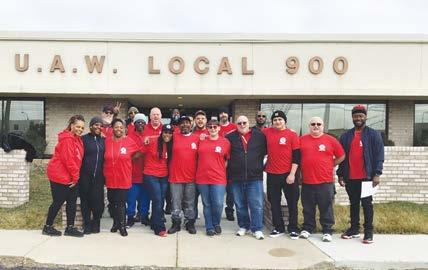
a laser automation technician. “In spite of the company’s efforts to suppress our union, we stood together in the face of adversity, supported each other, rallied others and ultimately, got the win! Looking forward to the muchneeded change and a brighter future for all of us at GNS.”
“Although the organizing process has been very rewarding, it was exhausting, being under management’s microscope throughout the campaign and not knowing what new union busting tactics they would throw at us the next day,” said Roberto Garcia,
“We welcome the GNS workers to the UAW and Local 900,” said UAW Local 900 President Dwayne Walker “UAW Local 900 has a long tradition of standing with workers and the community to make people’s lives better. Congratulations on this hard-fought win!”
UAW Region 1A Director Laura Dickerson welcomed both companies’ employees.
“Workers are exercising their rights and making sure their voices are heard,” Dickerson said.
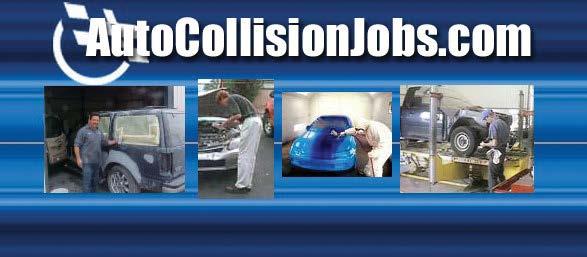

1 Cochran Kia of Robinson Justin Kendrick
Archer Kia Jose Amaya
Auto Park Kia John Parrish
Bergey's Kia Alan Manuel Bergstrom Kia 116 Ricky Pratt
Billion Kia of Iowa City Steve Ebsen
Blasius Kia Robbie Fenn
Boomer Kia Chris Sanders
Car Pros Kia Moreno Valley Jesse Del Real
Central Kia of Plano Ezequiel De Los Santos
Cherry Hill Kia Jeffrey Rattay
Citrus Kia Sean Cunningham
City Kia of Greater Orlando Tony Long
Coral Springs Kia Thomas Pasquarella
Courtesy Kia Michael Buchanan
Doral Kia Troy Thomas
Fiesta Kia Daryl Bell
Fort Wayne Kia Brian Dinelli
Gerald Kia of Naperville Bill Taylor
Greenway Kia Hickory Hollow Wesley Baker
Greenway Kia North Ted Polygalaktos
Hendrick Kia of Concord Patrick Dougherty
Jerry Seiner Kia Tyler Mitchell
Jerry Seiner Kia Salt Lake Marty Dailey
Jts Kia of Rock Hill Thomas Hakim
Ken Ganley Kia Mentor Jason Baker
Kia Downtown Los Angeles Jose Zamora
Kia of Abilene Cory Smith
Kia of Attleboro Frank Medeiros
Kia of Baton Rouge Patrick Jackson
Kia of East Hartford Juan Molina
Kia of Johnson City Emmanuel Watkins
Kia of Murfreesboro Scottie Clark
Kia of Port Charlotte Gary Wilcoxon
Kia of South Austin John Pierson
Langdale Kia of Valdosta Thomas Oneal
Lawrence Kia Tyler Bunce
Lawton Kia Tony Sanchez
Leblanc Kia Scott Deforrest
Lou Fusz Kia of Evansville Jeff Brown
Lupient Kia Marty Van Reese
Luther Kia of Bloomington Chad Huffman
Mastria Kia Matthew Wrightington
Orr Kia of Shreveport Bossier David Rutherford
Ourisman Chantilly Kia Charles Shipe
Ourisman Kia of Fairfax Michael Munn
Parkside Kia Dennis Bunch
Peltier Kia Longview Chris Timmons
Preston Kia Lynette Bright
Raceway Kia of Conshohocken Alan Bannick
Rick Case Kia Farris Duracher
Route 6 Automall Kia Adam Martineau
Sames Kia Juan Vela
Sands Kia Scott Giffin
Scott Kia of Springfield James Johnson
Southwest Kia of Rockwall Joshua Taylor
Sunset Kia Kevin Pedersen
Towbin Kia Jessica Williams
Vandevere Kia Michael Wagner
West-Herr Kia Pat Hamann
Ancira Kia Ross Simmonds
Bergstrom Kia Appleton Austin Croatt
Bob Utter Kia Michael Martin
Car Pros Kia Robert Sherman
Car Pros Kia Glendale Elder Acevedo
Chantz Scott Kia James Mcelyea
Ciocca Kia Tariq Shaker
Concord Kia Fernando Belanger
Courtesy Kia of Brandon Rodney Zeller
Crain Kia of Bentonville Brittany Hawkins
Crown Kia Joseph Galbraith
Diehl Kia of Massillon Michael Miller
Don Franklin Somerset Kia Jimmie Caudill
Dublin Kia Hector Alvarado
Eagle Kia of Riverhead Robert Portelli
Earnhardt Peoria Kia John Wilmot
Family Kia of St. Augustine Steve Steer
Fiesta Kia Darren Bye
First Kia German Zuniga
Fred Beans Kia of Langhorne Mick Padgeon
Fredy Kia Mike Solis
Gerald Kia of Matteson Jeremy Mihas
Gerald Kia of North Aurora Mark Erickson
Hanson Kia Joshua Wise
Hendrick Kia of Cary Jared Rodegast
Horne Kia Rich Choquette
Huffines Kia Corinth Dan Marder
Huffines Kia McKinney Roy Allen
Jackson Kia Nicolette Beauchesne
Jim Shorkey Kia of Gainesville Lori Javorka
Ken Ganley Kia Boardman Tom Tschappatt
Ken Ganley Kia Clarksburg Ryan Morgan
Ken Ganley Kia Medina Anthony Szabo
Ken Garff Kia Avondale Ronald Munson
Kia Autosport Louis Pope
Kia of Cape Coral Brandon Mello
Kia of Carson Michael Chavez
Kia of Cerritos Darren Storlie
Kia of Everett James Mealey
Kia of Frisco Zach Phillips
Kia of Irvine Jonathan Orendain
Kirby Kia of Ventura Brian Nunes
Lou Fusz Kia Adam Berry
Moritz Kia of Fort Worth Leo Salgado
Myrtle Beach Kia James Mathers
Peak Kia Alex Gross
Peak Kia Colorado Springs Charles Inmotto
Peltier Kia Tyler Craig Huddleston
Ray Skillman Shadeland Kia Daniel Hill
Rick Case Kia Hugo Gomez Jr.
Ron Tonkin Kia Gene Nevett
Seelye Kia of Kalamazoo Greg Meskil
Serra Kia of Gardendale Teresa Cornelius
Sons Kia Stephen Wilson
Stevens Creek Kia Alejandro Berber
Tameron Kia Michael Peterman
Tempe Kia Daniel Lanious
University Kia John Rice
Van Nuys Kia Daniel Arambula
Williams Kia Chad Todd
Airport Kia Juan Munoz Airey
Allentown Kia David Robbins
Bald Hill Kia Matthew Jarvis
Bert Ogden Harlingen Kia Arnold Garza
Bev Smith Kia Isaac Roush
Beyer Kia Falls Church William Cooke
Billion Kia Nate Leamons
Car Pros Kia Renton Homero Sereno
Cornerstone Kia Kurt Vankempen
Courtesy Kia John Arth
Covina Valley Kia John Shackford
Dale Spradley Kia Doug Brewer
Demontrond Kia Billy Doria
Dothan Kia Mike Fowler
Ed Voyles Kia of Chamblee Joshua Hembree
Folsom Lake Kia Joshua Boody
Fort Collins Kia Alan Kiriakos
Garden Grove Kia Felipe Garrido
Gateway Kia of North Brunswick Manuel Rivera
Greenway Kia East Daniel Herrera
Gunther Kia Brian Scott
H & H Kia Steven Arquitte
Hagerstown Kia Rich Fraley
Halleen Kia of Sandusky Chris Schnell
Hart Kia Jared Pendleton
Hello Kia of Valencia Daniel Diaz
Hollywood Kia Troy Gulvas
Hw Kia of West County Dan Hartke
Jacksonville Kia Catherine Bowers
Jeff Wyler Fairfield Kia Jayson Swain
Jenkins Kia of Crystal River Edward Fasano
Kia of Alhambra Antonio Rodriguez
Kia of Cleveland Heather Perrystein
Kia of Coatesville Ronald Bittle
Kia of Des Moines Brett Obraza
Kia of Grand Blanc Brian Baldridge
Kia of Huntington David Coffey
Kia of Puyallup Kasey Cates
Kia On The Boulevard Frank Hettich
King Kia of Laurel Corey Anderson
Lafontaine Kia of Dearborn Brad Mandeville
Lee Johnson Kia Josh Grant
Lou Sobh Kia Terry Utley
Matthews Kia Gary Brundage
McGovern Kia of Norwood Brian Wong
Napoli Kia Paul Coppola
Nashua Kia Ryan Rattray
North County Kia Jim Sanders
Palmen Kia of Kenosha Rigoberto Fuentes
Regal Kia Steve Chilton
Roseville Kia Felix Garcia
Rusty Wallace Kia of Knoxville Robert Kay
Seelye Kia of Battle Creek Randall Bundy
Smithtown Kia Thomas Hartmann
Stokes Hodges Kia Kevin Maskey
Sunset Kia of Sarasota Robert Perrin
Valley-HI Kia Stuart Meyer
Vanguard Kia of Arlington Christopher Vinson
Warner Kia Tim Pennybacker
West Hills Kia Mark Coutts
insurance companies, defrauding them through staged accidents and fraudulent injury claims.
FBI investigators found Lawhorn recruited friends, acquittances, family and friends of friends to participate in the staged accidents. Conspirators went to various medical providers, claiming injuries from the staged accidents and requesting various testing, such a MRIs, CT scans and X-rays. Conspirators then submitted false claims to insurance companies that they had suffered bodily injuries and they would be personally liable for any medical bills related to insurance claims. Conspirators, some of whom were involved in multiple incidents, received thousands of dollars, and in some cases tens of thousands of dollars, based on these false claims. However, none of the conspirators made any payments to medical providers and instead used the funds for their personal expenses.
Brown’s involvement in three staged incidents netted her more than $44,000 in insurance payments. Stapleton admitted he
and co-defendant Tara Colleen Jackson , 60, of Independence, MO, who is Lawhorn’s mother, participated in a staged automobile accident in Kansas City. State Farm issued a $50,000 check to Stapleton and a $50,000 check to Jackson. None of the medical bills, totaling $188,920 at two hospitals where Stapleton and Jackson were treated, have been paid.
Stapleton and Brown are among 16 defendants who have been sentenced in this case.
Lawhorn pleaded guilty in June 2023 to one count of conspiracy to commit wire fraud, one count of conspiracy to commit mail fraud, and one count of aggravated identity theft. Lawhorn also pleaded guilty in a separate and unrelated case to commit wire fraud. His sentencing date has not yet been scheduled.
Jackson pleaded guilty in April 2023 to one count of conspiracy to commit wire fraud and one count of conspiracy to commit mail fraud and awaits sentencing.
This case is being prosecuted by Assistant U.S. Attorney Aaron M. Maness . It was investigated by the FBI and the Bureau of Alcohol, Tobacco, Firearms and Explosives.
MAGA Motors, a now-closed auto repair business in Tea, SD, has left a trail of irate customers and legal challenges in its wake. People who sought repairs found themselves embroiled in a financial and psychological nightmare, they told Dakota News Now, with cars either not fixed or further damaged, leading to significant financial strain and emotional distress.
Judy Kubiszweski, a resident of Harrisburg, SD, shared her experience with Dakota News Now, after the news outlet published an article about another customer who paid MAGA Motors $1,000 for repairs, only to find out later the business had been evicted and her car had been towed elsewhere, costing her more money.
Kubiszweski said MAGA Motors performed a series of failed repairs, ignored requests for invoices and overcharged her, culminating in the total loss of her vehicle. Kubiszweski, who depends on her car for work,
described the ordeal as a severe blow to her livelihood.
Kubiszweski said she knows dozens of other people with similar experiences with the now-defunct business, who have shared their stories on a consumer website.

MAGA Motors, owned by Tracy Hicks, opened in 2022 and operated for 18 months. It now has seven lawsuits filed against it in the state. South Dakota Attorney General Marty Jackley and his Consumer Protection Division did not disclose specifics to Dakota News Now, but acknowledged the severity of the allegations and said the business is “very much on his radar.”

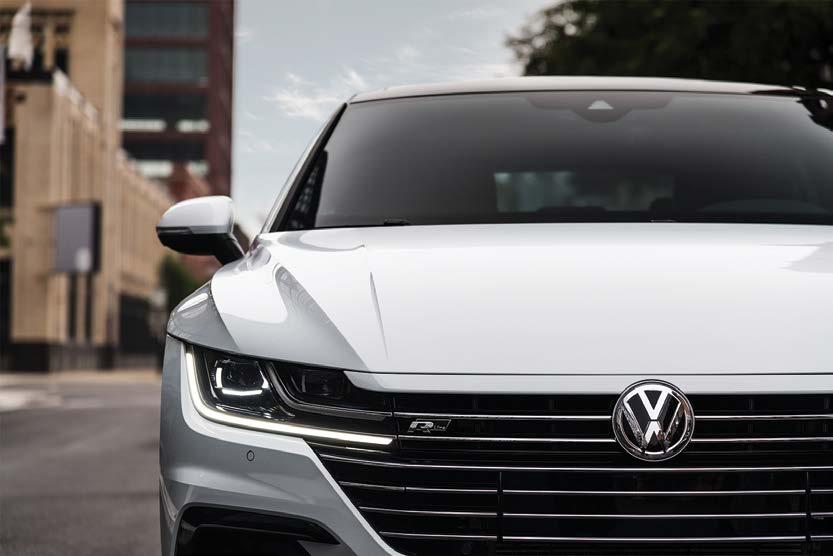

State legislatures around the country are reviewing proposed laws that could have a variety of impacts on the collision repair industry.
A House committee in Massachusetts in February gave a thumbs up to H 4412, a bill that calls for establishing a minimum reimbursement body shop labor rate by adjusting the labor rate in effect in 1988 by the rate of inflation since then.
During a House committee hearing in Washington state earlier this year, lawmakers heard testimony for and against HB 2011, a bill that would give policyholders the right to call for an independent appraisal when there’s a disagreement about repair costs. Jeff Butler, a Seattle shop owner who also operates as an independent adjuster through Collison Consulting of Washington, told lawmakers the amounts he helps consumers recover because of underpaid claims averages $7,200.
“That’s 78% more than the insurer’s last offer [and] 19% more than on total loss cases…and I won those cases using the insurance company’s umpire,” Butler testified.
“This is a pattern and practice in Washington state.”
SB 2745, introduced in Mississippi, would define a “proper repair” as one performed “pursuant to the OEM repair procedures and using OEM or OEM-equivalent parts that have been properly tested…to meet the manufacturer’s specifications.” It would prohibit an insurer from stating or suggesting an insured must use a particular shop, or a

shop “identified on a preferred list compiled by an insurer.” It would require these provisions be “clearly and prominently” stated “on the face of the insurance policy.”
The Automobile Body Parts Association (ABPA), which represents manufacturers and distributors of non-OEM parts, submitted testimony
opposing the bill, focusing on another portion of the bill, which states, “Restoration of the vehicle to its condition prior to the loss includes repair processes.” The bill defines those as “as the explicit processes, tolerances and other technical requirements or instructions for the repair of a motor vehicle…that the motor vehicle manufacturer makes generally available to dealerships, independent repair shops and insurers.” The bill states it does not mandate an insurance company pay for OEM parts “except to the extent that the use of alternate parts would fail to restore the vehicle to its condition prior to the loss.”
The ABPA, however, told lawmakers “any bill language restricting the use of alternative parts, in favor of self-serving repair processes that primarily benefit OEM manufacturers, could lead to a monopolistic environment detrimental to consumers.”
The ABPA also testified at a February hearing in Idaho opposing S 1233, a bill that would add to the required notice on estimates there that include non-OEM parts; that notice would be required to say such parts “may affect the safety and performance of your vehicle,” and
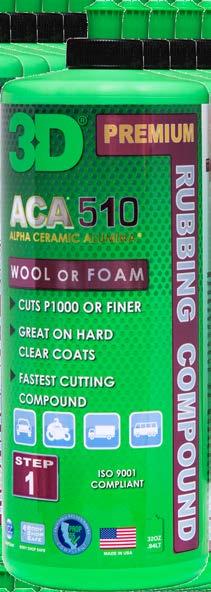
recommend “that you consult with a qualified industry expert or repair shop before making any decisions regarding the use of non-OEM crash parts.”
The ABPA also is opposing a Rhode Island bill, H 7264, that would prohibit an insurer from denying the use of OEM parts on vehicles four to six years old if the repairer has written consent from the vehicle owner to
“This is a pattern and practice in Washington state.”
JEFF BUTLER COLLISON CONSULTING OF WASHINGTON
install OEM parts. Existing state law there prohibits the required use of non-OEM parts for vehicles up to four years old unless the repairer has written consent from the vehicle owner.
The Automotive Service Association has created a webpage where Oklahomans can quickly send a letter to their state legislators to urge their opposition to SB 1853, a bill that sets limits on charges for tear-down work and storage fees. Visit www.votervoice.net/ASASHOP/ campaigns/111794/respond to send a letter.
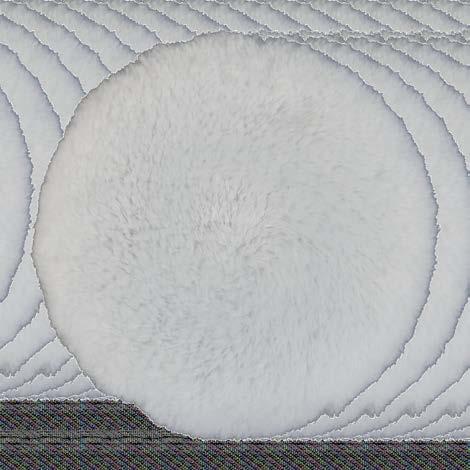
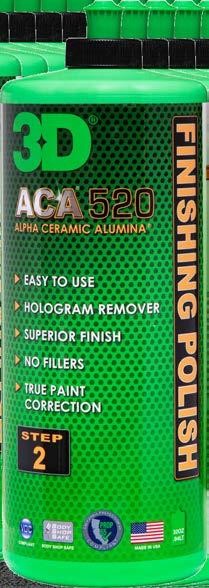
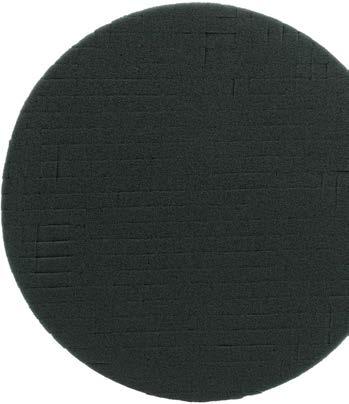
Apple has officially stopped development of its electric car, a project that began a decade ago and aimed to revolutionize the automotive industry.
The decision comes amid broader economic challenges and a shift in consumer demand affecting the electric vehicle (EV) market.
A decade after initiating Project Titan, its ambitious endeavor to enter the automotive sector, Apple cancelled the project, part of a realignment in response to the current economic climate and industry trends. Shares of Apple saw a slight increase of 0.7% in afternoon trading Feb. 27, after news of the project’s demise was reported, recovering from earlier losses.
The cessation of the electric car project has led to the reassignment of several team members to Apple’s artificial intelligence division, as reported by Bloomberg News.
Apple declined to comment.
Rising interest rates aimed at
curbing inflation has dampened consumer enthusiasm for high-priced electric vehicles, prompting not only Apple but also established automakers to reassess their strategies. Companies like Tesla have scaled back investments, with a growing focus on hybrid models over fully electric vehicles.
The journey of Project Titan was marked by ambition as well as challenges. Initially sparked by the Silicon Valley craze for self-driving technology, Apple aimed to redefine transportation. Reuters reported in 2020 the possibility of an Apple vehicle launch by 2024 or 2025. However, the path was fraught with obstacles, including a major workforce reduction in 2019. As recently as January, Bloomberg reported Apple was still planning to launch its own EV in 2028, but one featuring “limited autonomous driving,” instead of a fully driverless vehicle.
The automotive industry is increasingly integrating internetenabled features that offer convenience but also pave the way for extensive data collection. While some programs offer optin mechanisms for usage-based insurance, there’s a growing concern over “stealth enrollment” and the lack of clear disclosure about third-party data access.
Kia, for instance, announced an agreement with LexisNexis in February to “allow eligible customers who have enrolled in Kia Connect Services to opt in to share their driving behavior data to receive a personalized driving experience and to be more informed drivers.” LexisNexis also supplies that data to insurance companies.
On the other hand, Dahl, along with several other owners of GM vehicles who also shared their stories of spiking insurance rates, found they had unknowingly been enrolled in OnStar Smart Driver, a free feature in GM brands’ connected car apps.
GM confirmed with the New York Times it shares “select insights” gathered by Smart Driver with LexisNexis and Verisk.
The incident has sparked a debate over privacy, consent and the ethical use of consumer data, with policymakers and regulators taking notice. California’s privacy watchdog is probing automakers’ data practices, and U.S. Sen. Edward Markey of Massachusetts has called for an FTC investigation, highlighting the potential intrusion of the “internet of things” into personal lives and its implications on consumer rights.
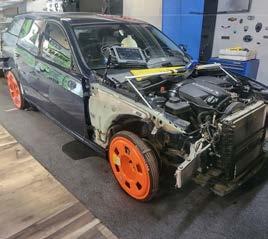
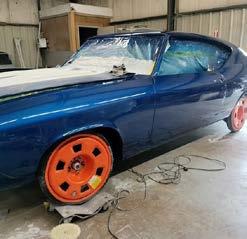
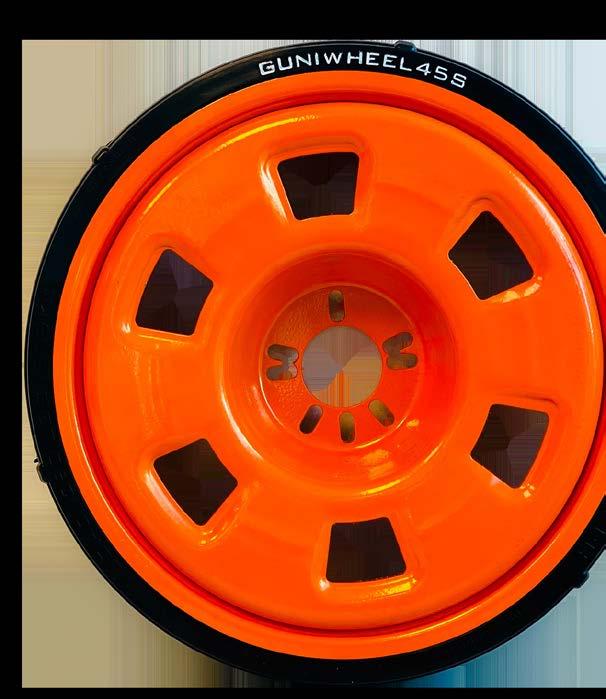





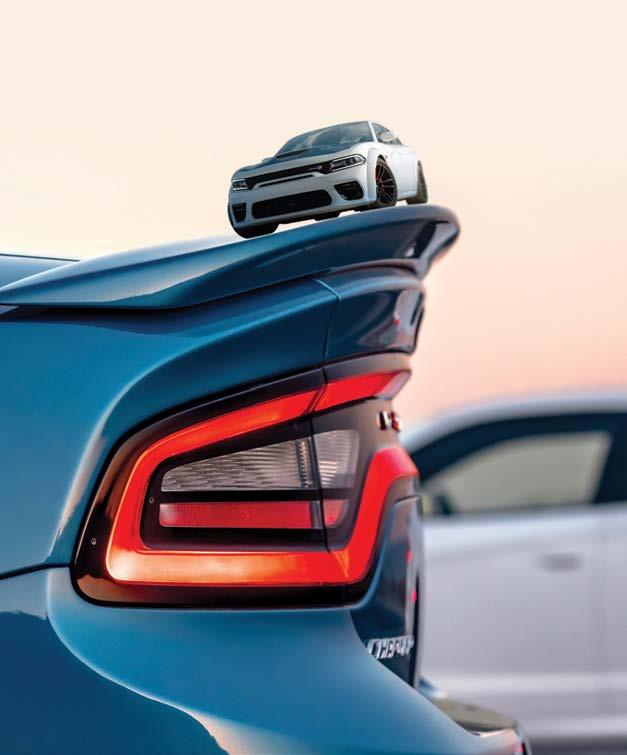

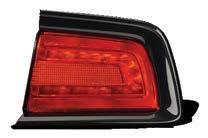
Jerry’s Abra, a collision repair facility in Mankato, MN, has provided and sponsored uniforms for technical college students in the community.
This generous act was made possible by partnering with other organizations, including I-CAR’s Collision Repair Education Foundation (CREF) and the Cintas Corporation.
Among the uniform recipients were South Central College students currently enrolled in the auto body technology program. This sponsorship will ensure all students have the proper repair uniform to wear during class. Jerry, Geri and Laura Kottschade, the owners of Jerry’s Abra, visited the school to gift the students their new uniforms and make connections with the next generation of collision repair experts.
“South Central College has an impressive group of students,” said Geri Kottschade. “The instructors, Dan and Jay, have done a remarkable job in recruiting top women and men to their program.
We are so grateful to partner with this school and look forward to continuing to build these bright individuals’ careers!”
technology program.

Jerry’s Abra has been involved with the local technical schools as the team takes pride in working with and helping future members in the auto body industry. In addition, partnering with the local schools provides the students with incredible career opportunities. By building this connection, two second year students from South Central College have been part of the Jerry’s Abra internship program since they were in their first year of the auto body

Laura and Geri both sit on the advisory panel to help nurture and continue to grow the auto body technology program. Additionally, Laura also works on the Skills Jerry’s program at Jerry’s Abra, where the philosophy is the degree is comprised of four years: two in school and two working at the collision repair center. In doing this, Laura has helped foster and place focus on the education and training piece for students to ensure career longevity.
“The Skills Jerry’s program has made a large impact on student development in this field,” Geri Kottschade. “Laura has been incredible in building this program to help students gain a full understanding of the field and set them up for success with not only their first job after graduating, but for many years to come.”
Trueclaim.ai has joined CIECA as a new corporate member. Established in 2021 and based in Montreal, Canada, the company was founded by Elie Lloyd, a software engineer and certified architect.
Lloyd’s parents owned a body shop for more than 25 years before the family began supplying collision repair products to body shops.
Trueclaim.ai was created to detect vehicle damage and estimate parts, operations and the price for repairs using artificial intelligence (AI), and integrates with car rental companies, car auctions and car salvage systems.
“The goal is to help shops communicate the damage accurately to insurers so they can get paid faster and more efficiently for the repairs done to the vehicle,” explained Lloyd. “Trueclaim.ai not only provides repair estimations rapidly and accurately, saving valuable time and money for body shops, but it also instills trust among insurers.”


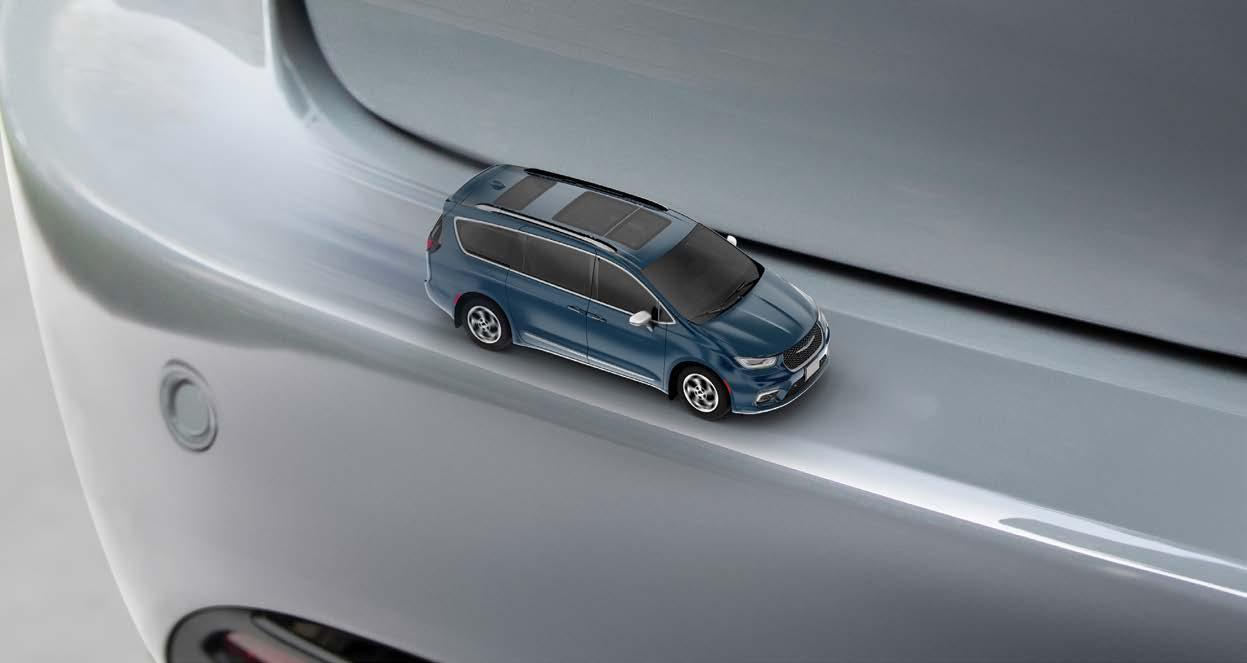
ILLINOIS
H AWK CHRYSLER
DOD GE JEEP
7911 W. Roosevelt Road Forest Park, IL 60130 (708) 366-8820
JACK PHELAN DODGE
5436 Dansher Road
Countryside, IL 60525 (800) 643-6343
RIVER FRONT CHRYSLER
DODGE JEEP
200 Hansen Blvd.
North Aurora, IL 60542 (630) 907-0300
INDIANA
EXPRESSWAY DODGE
5401 E. Virginia Street
Evansville, IN 47715 (800) 800-1259
Fax: (812) 437-9590
KAHLO CHRYSLER
DODGE JEEP RAM
9900 Pleasant Street Noblesville, IN 46060 (317) 773-6363
parts@hellokahlo.com
IOWA
STEW HANSENS DODGE CITY
12103 Hickman Road
Urbandale, IA 50323 (515) 331-2901
KANSAS
PARKS MOTORS
11987 SW US Highway 54 Augusta, KS 67010 (316) 775-4390
MICHIGAN
ZEIGLER CHRYSLER DODGE JEEP RAM ALFA ROMEO FIAT
4200 Parkway Place Dr SW Grandville, MI 49418 (800) 881-3097 (616) 532-4929
MINNESOTA
MILLS PARTS CENTER
2508 Airport Drive SW Willmar, MN 56201 (800) 247-1158
OHIO
CLASSIC CHRYSLER
DODGE JEEP 6300 North Ridge Road Madison, OH 44057 (440) 417-1063 (877) 940-8670
KEN
DODGE JEEP RAM
310 Broadway Avenue Bedford, OH 44146 (440) 232-4950
Hyundai Motor Co., which owns the Hyundai, Genesis and Kia brands, and Kia Corp. have agreed to a settlement potentially worth up to $145 million to resolve allegations that certain Kia vehicles were manufactured with design flaws making them easy targets for theft and damage.
The resolution comes after a series of class action lawsuits claimed the vehicles lacked essential engine immobilizers, rendering them susceptible to thefts, especially those propagated via social media platforms like TikTok.
The settlement encompasses a wide range of Kia models purchased or leased between 2011 and 2022 in the U.S. and its territories, including Puerto Rico, the U.S. Virgin Islands and Guam. The agreement does not preclude claims related to personal injury, death or subrogation by licensed insurers, maintaining the rights of individuals affected by these issues beyond the scope of theft and damage.
Under the terms of the settlement, eligible class members,
specifically owners of certain models ranging from the 20112022 Kia Forte to the 2020-2022 Kia Soul, can benefit from various forms of compensation. These
may receive up to $300 in reimbursement per vehicle for antitheft measures. The settlement outlines compensation for out-ofpocket and uncompensated losses
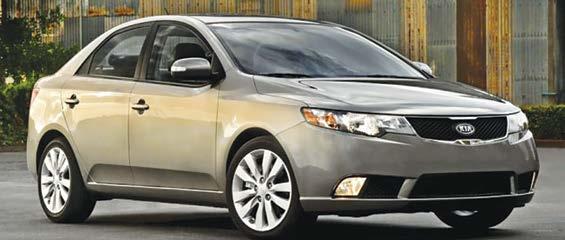
include a free software upgrade designed to prevent the vehicles from starting without the key present -- a response to the method of theft popularized on social media. Additionally, reimbursements for the purchase of steering wheel locks or similar anti-theft devices, as well as for the installation of glass-breakage alarms or other aftermarket anti-theft systems, are available to those impacted.
For vehicles ineligible for the software upgrade, owners
resulting from theft or attempted theft, including up to 60% of the vehicle’s value for total loss and up to $3,375 or 33% for damage incurred.
The settlement establishes a fund ranging from $80 million to $145 million to cover these claims. The deadline to opt out of or object to the settlement is May 3, 2024. The final fairness hearing in the Kia theft settlement is July 15, 2024. The deadline to submit a claim is Jan. 11, 2025.
The Women’s Industry Network (WIN) announced a full slate of in-depth professional collision repair industry programing, inspiring keynote speakers, and networking and mentoring opportunities 2024 Annual Conference, themed Dream Out Loud, set for May 6-8 at the Hyatt Regency Newport Beach, CA, offering both inperson and virtual attendance opportunities.
The conference will celebrate women in the industry by raising funds for collision repair student scholarships, recognizing scholarship winners, taking part in community giveback, and honoring this year’s Most Influential Women recipients.
WIN is excited to announce an extensive curriculum during the event, as this year’s conference offers multiple timely topics presented by several prominent speakers.
To see the agenda and register, visit thewomensindustrynetwork. site-ym.com/page/Conference
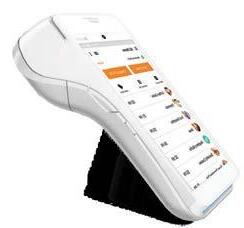


Classikk Line Available
AkzoNobel announced the nationwide availability of the Modern Classikk by Kindig custom automotive paint line at select Advance Auto Parts and Carquest Auto Parts stores. This collaboration brings together AkzoNobel’s advanced Sikkens base coat technology with the design expertise of Dave Kindig from Kindig-It Design and the popular television show, “Bitchin’ Rides.”
Currently, nearly 400 Advance and Carquest stores offer the Modern Classikk paint line, with additional locations being added regularly. Customers can check the availability of the product at their nearest store by visiting Modern Classikk’s website or contacting their local Advance or Carquest store team. The paint products are also accessible online at ModernClassikk.com.
Each store will provide literature and paint chip fan decks. Once customers select their preferred colors, store personnel will place an order, and AkzoNobel will deliver the customized paint order to the nearby Advance or Carquest store for convenient pickup.
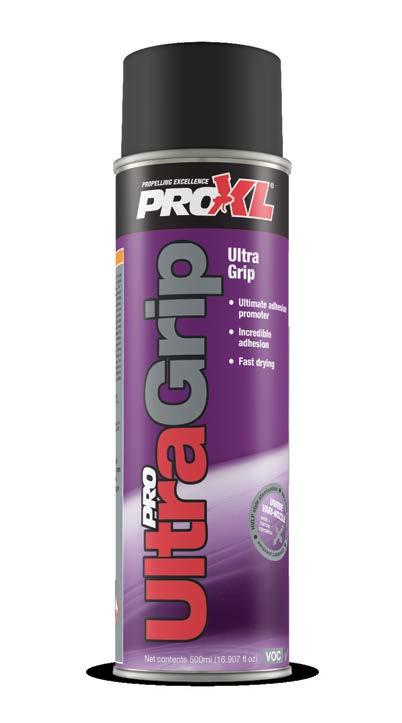
A deserving Chicago resident was presented a vehicle to provide her independence and the ability to work, continue to volunteer and help others and take care of her family, thanks to the National Auto Body Council Recycled Rides program, along with car donor Allstate and repair partner Gold Coast Auto Body
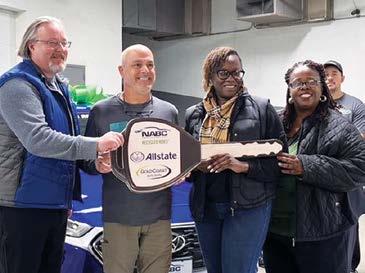
The presentation was held Feb. 16 at the Gold Coast Auto Body location on Division Street in Chicago. The deserving recipient, Lavinia Phillips , was nominated by Family Promise North Shore.
Phillips and her two daughters had housing challenges and were able to move from a shelter to stable housing, which is when Phillips began paying it forward. Besides working and creating a home for her daughters, ages 11 and 13, Phillips volunteers on the local Housing & Homelessness Commission. She also became a case manager serving homeless families in the community. Currently she is a parent advocate at the local school district. The donated vehicle will ensure she is able to work, attend her daughters’ afterschool programs and keep up her volunteer activities to better the community.
“We appreciate the opportunity to assist a community member in need,” said Dominic Martino , president and co-owner of Gold Coast Auto Body. “Our team had a great time refurbishing this vehicle for Ms. Phillips. The best part of this
experience was seeing the smile on her face.”
“I am beyond excited,” said Phillips. “I don’t know what to say other than thank you so much to everyone that made this possible.”
“Ms. Phillips continues to work full-time to take care of her family and volunteer her time to take care of others,” said Tracy McKeithen , executive director of Family Promise North Shore. “I can’t think of a more deserving recipient for this gift!”
The NABC Recycled Rides is a unique program in which businesses representing all facets of the collision repair industry team up to repair and donate vehicles to individuals and families in need of reliable transportation. Since the inception of the program in 2007, members of the NABC have donated more than 3,300 vehicles valued at some $47 million.
Additional partners in the presentation included Cars for Charity, Advanced Remarketing Services and Copart.

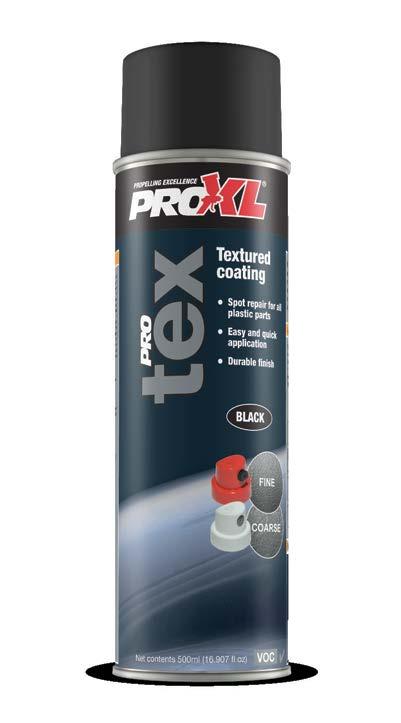
Unlock savings and precision fit with genuine parts
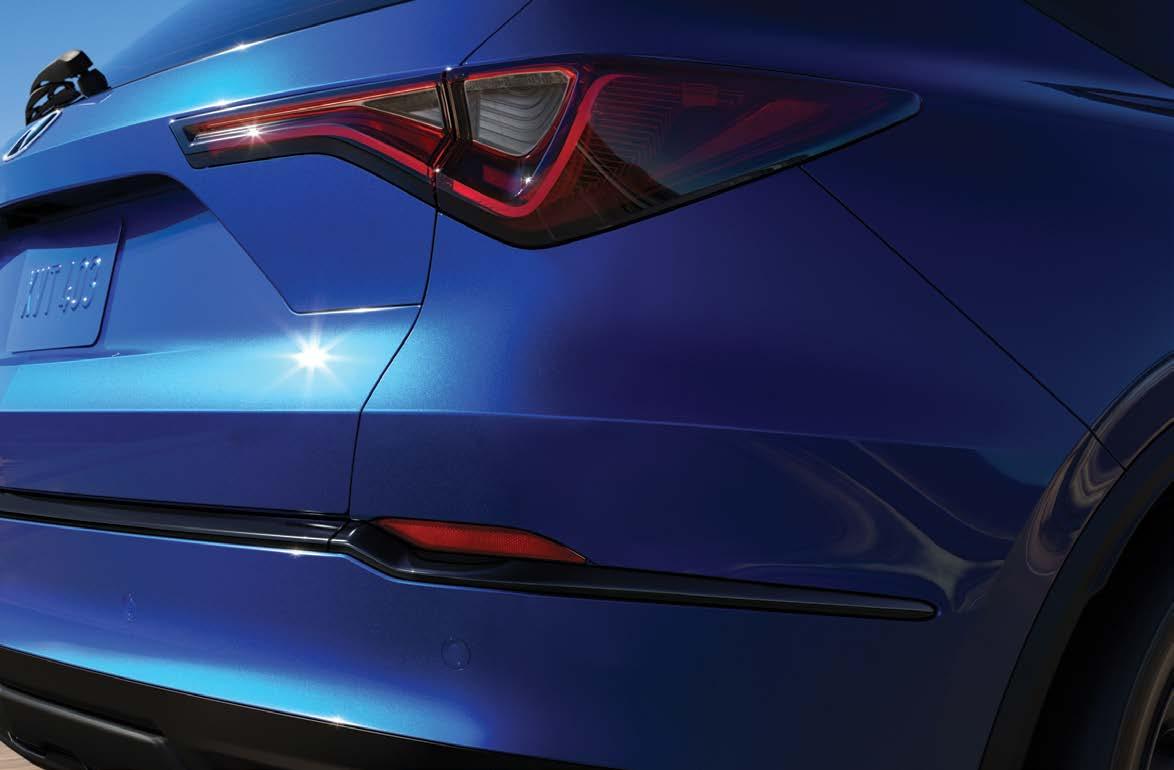
• Save time and money: reduce returns by up to 16%
• Faster ordering process
• More accurate orders
• Easier invoice processing
• Live information
• Seamless fit
• Competitive pricing
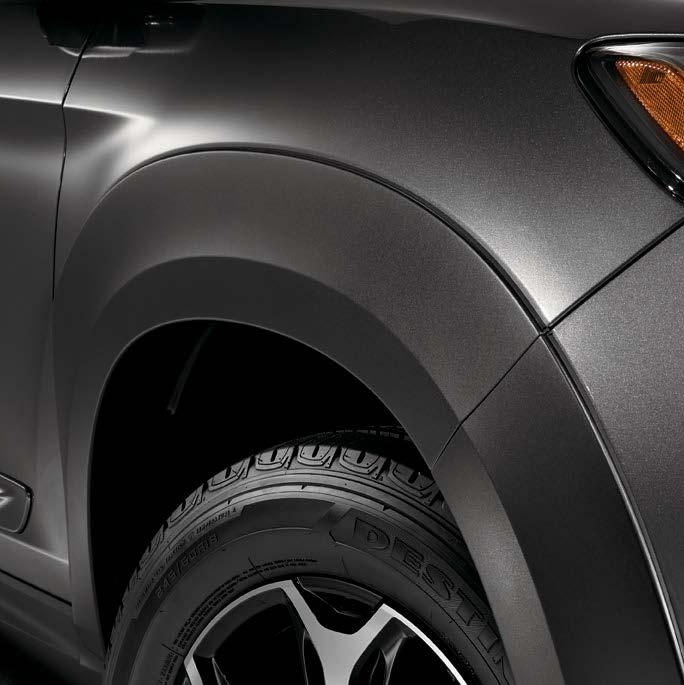
Order now on CCC ONE®
HONDA
ILLINOIS
Honda of Lisle Lisle
866-874-6632
630-437-5299
Dept� Hours: M-F 7-5 WholesaleParts@HondaofLisle�com
INDIANA
Bob Rohrman Honda
Lafayette
765-588-9984
765-448-1000
Dept Hours: M-F 7:30-5:30; Sat 8-3 Brho partsmgr@rohrman com
Suburban Honda
Farmington Hills
248-427-7996
Dept Hours: M, Thu 7-8; Tue, W, F 7-6; Sat 8-3 nowiesny@suburbancollection com
Victory Honda
Kalamazoo
855-513-4477
269-585-5812
Dept� Hours: M-F 8-6; Sat 8-2 glenloubsky@ziegler�com
Brookdale Honda
Brooklyn Center
800-899-8900
763-331-6880
Dept Hours: M-Thu 7-9; F 7-6; Sat 8-6 parts@lutherbrookdalehonda com
Luther Hopkins Honda
Hopkins
800-328-6016
952-908-8585
Dept Hours: M-F 7-6; Sat 8-4 parts@hopkinshonda com
Richfield-Bloomington Honda
Richfield
Bommarito Honda
Hazelwood
800-731-8270
314-731-8270
Dept� Hours: M-Sat 7-6 cmelvin@bommarito�net
Ed Napleton Honda
St Peters
800-875-4190
636-928-4400
Dept Hours: M-F 7-6; Sat 7-5 gethondaparts@napleton com
Columbia Honda
Columbia 573-818-3650
MICHIGAN NEBRASKA
Plymouth
800-824-4646
734-453-3600
Dept� Hours: M-F 7:30-7; Sat 8-4 Robert rosenau@victorytoyota com
ACURA
ILLINOIS
McGrath Acura of Morton Grove
Morton Grove
847-470-2308
Dept Hours: M-F 7-7; Sat 7-4 acparts@mcgrathag com
KANSAS
Jay Wolfe Acura of Overland Park
Overland Park
913-648-2287
Dept Hours: M-F 7-5; Sat 8-4 wozburn@jaywolfe com
800-328-2703
612-866-8197
Dept� Hours: M-Thu 6:30-7; F 6:30-6; Sat 6:30-5 parts@rbhonda�com
MICHIGAN
Acura of Troy
Troy
800-935-0923
248-643-0900
Dept Hours: M-F 8-6 parts286@acuraoftroy com parts287@acuraoftroy com
Dept� Hours: M-F 8-5:30; Sat 8-4 gropp@columbiahonda com
Honda of Tiffany Springs
Kansas City
816-452-3221
Dept Hours: M-Fri 7-6; Sat 7-2 parts@hondats com
Superior Honda Omaha
Omaha
402-408-1100
Dept Hours: M-F 7-5:30; Sat 7-5
OHIO
Columbia Acura
Cincinnati 844-677-4902 513-530-0698
Dept Hours: M-F 8-5:30; Sat 8-12 columbiaparts@email com MINNESOTA
Luther Bloomington Acura Bloomington 800-451-5078
952-887-0600
Dept Hours: M 6:30-6; Tue-F 6:30-9; Sat 8-4 parts@bloomingtonacura com
OHIO
Apostolakis Honda
Cortland
800-900-4600
330-638-3060
Dept� Hours: M-F 7:30-5:30; Sat 8-4 parts@apostolakisauto�com
Jay Honda
Bedford
800-509-9057
440-786-3363
Dept Hours: M-F 7:30-6; Sat 8-4 jayhondaparts@gmail com
A legislative proposal in Nebraska has ignited a debate over the future of Tesla’s operations within the state, according to a report from the North Platte Telegraph.
The bill, initially aimed at closing a loophole in the state’s Motor Vehicle Industry Regulation Act, now threatens the existence of Tesla’s recently established service center in Lincoln.
The controversy began when State Sen. Carolyn Bosn of Lincoln, prompted by the Nebraska New Car & Truck Dealers Association, introduced LB 891. The bill sought to amend the state law with less than 15 words, essentially updating the definition of what constitutes a car manufacturer.
“The bill started off pretty simple,” Loy Todd, the association’s lobbyist, told the news outlet. “Just updating the definition to make sure that if you manufacture motor vehicles, you’re a manufacturer — as simplistic as that may sound.”
However, the straightforward legislative effort quickly became contentious. During a public
hearing in January, Tesla representatives and owners expressed their concerns the proposed changes would inadvertently ban Tesla from operating its service centers in Nebraska.
Bosn. The center, which began operations Dec. 18, exists in a somewhat legal gray area, unbeknownst to the public and even some legislators until just before the hearing.

“Nebraska law currently allows Tesla to operate a service center for providing service, including warranty repairs in-state,” Mary Vaggalis, Tesla’s lobbyist, said during the hearing.
The news of Tesla’s service center, opened in a former Sears auto shop at Gateway Mall, came as a surprise to many, including
The proposed legislative changes stem from a broader national discussion about the direct-to-consumer sales model employed by Tesla and other EV manufacturers. Traditional auto dealership laws, designed to protect dealers from direct competition with manufacturers, do not account for companies like Tesla that sell directly to consumers without franchised dealerships.
Despite the initial intent, Bosn and other stakeholders are now seeking a compromise. The aim is to allow EV manufacturers to provide essential services, such as warranty and repairs, without venturing into direct sales or manufacturing within the state.
Abra announced Wayne Kelly has made a return to the network where he began his career. Now serving as the vice president of operations, Kelly’s homecoming is timed with Abra’s 40th anniversary.
When Kelly started out as a technician at a young age, in Minnesota, Abra was a fledgling brand. As it grew – and began franchising in 1987 – Kelly grew with them, running locations, managing operations and recruiting new franchise owners. A member of the original Abra family, he took great pride seeing Abra evolve into a powerful brand in the collision repair industry.
Under the larger umbrella of Driven Brands since 2019, Abra has benefited from enhanced resources, operational expertise and educational opportunities. In his new position, Kelly will capitalize on these advantages, focusing on operational improvements, leadership development and strategic expansion. The introduction of the Driven Brands EPG (EDGE Performance Groups) is one initiative aimed at bolstering Abra owners.

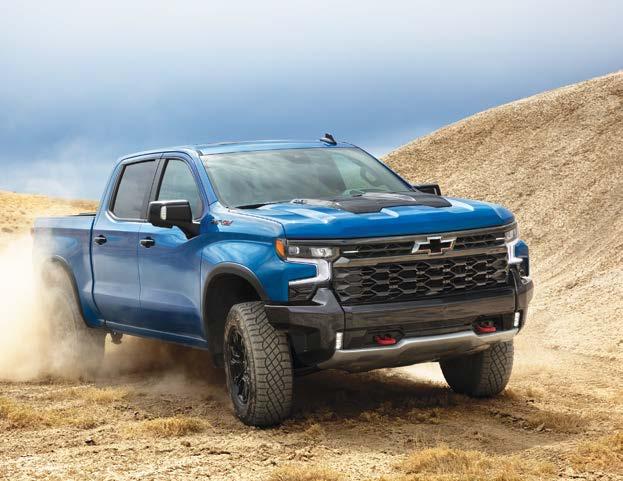


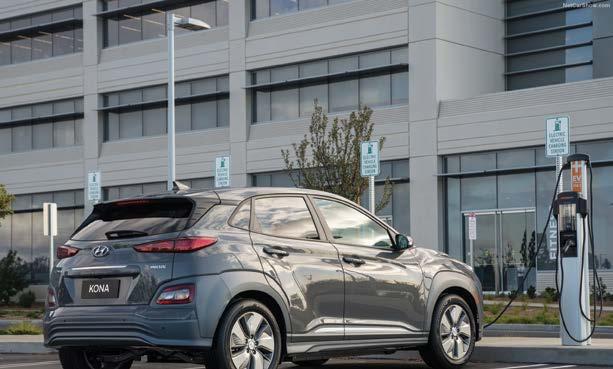





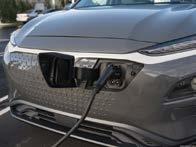

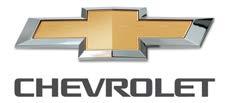
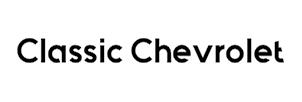






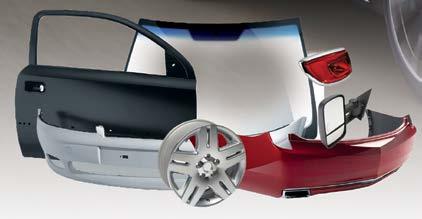



In response to the growing challenges faced by the collision repair industry in retaining and attracting skilled technicians, I-CAR, in collaboration with the Society of Collision Repair Specialists (SCRS), engaged with Ducker Carlisle, a global consulting firm, to conduct a technician satisfaction survey researching their opinions on compensation, culture and career opportunities.
This comprehensive white paper showcases the unique perspective of collision repair technicians and aims to better understand their sentiments and career outlook while identifying key factors influencing their workplace satisfaction.
This survey, which was conducted in 2023 and involved more than 800 collision repair technicians, provided valuable insights into various aspects of the profession. Ducker Carlisle’s comprehensive experience in the automotive space and their history of surveying, analyzing and benchmarking the perspective of diesel and mechanical technicians was instrumental in helping the collision repair industry understand recruitment and retention challenges.
The survey also allowed a basis for comparison between those two automotive service sectors which often compete with the collision repair industry for technician talent.
“The white paper’s groundbreaking results shed light on critical areas that need attention within our industry,” said Dara Goroff, vice president of planning and industry talent programming. “We’re already starting to provide solutions that address the issues contributing to attrition with the goal of enhancing technician satisfaction to help the industry attract, engage, educate and retain the top talent that will foster the industry’s sustainability, growth and success.”
The white paper sheds light on critical areas, including:
Overall satisfaction: While collision techs express higher satisfaction than dealer service counterparts, more than a quarter are still considering leaving their roles. They are are also hesitant to recommend the career to others.
Compensation and Pay Plans: High earning potential exists, as a large portion of tenured techs earn more than $100,000 per year, but disparities

based on experience and shop type create barriers for newer techs. More than 60% of techs are on flat rate pay plans, which is also very unpopular –flat rate technicians overwhelmingly would not recommend the career.
Benefits Offerings: Lack of clear offerings or awareness poses a challenge in attracting and retaining talent. Health insurance and paid time off are only offered by about 15% of shops.
Career Outlook & Progression: Nearly half are dissatisfied with or unaware of advancement opportunities. This is a problem for the industry – opportunity for career advancement is very strongly correlated with overall technician satisfaction. In addition, technicians who may be looking for other opportunities don’t have to look far, as they are regularly being recruited by competing shops.
Technical Training: Average dissatisfaction highlights the need for improved and consistent training options. Investing in training opportunities is an important way for shops to demonstrate they value their technicians and want to provide strong growth and career paths. Of course, improved training offerings


also benefit the shop as the shop gains a higher skilled workforce – it’s a win-win.
New Technology: Collision techs express excitement about working on emerging technologies, offering a potential recruiting advantage.
“The industry recognizes that collision repair technicians are indispensable to our business operations. Their pivotal role is evident, and the current industry landscape, marked by an annual turnover rate of 30% to 40% among technicians, underscores the challenges we face,” added Aaron Schulenberg, executive director of SCRS. “In light of the pressing technician retention crisis, understanding the sentiments and career outlook of our skilled technicians has become a paramount concern for the industry’s sustained success.”
While recruiting new technicians is important, retaining those already employed is just as, if not more important.
For more detailed findings and insights, the complete white paper is available for viewing at info.i-car. com/I-CAR/media/ICarMain/PDF/ Collision-Technician-Survey.pdf.




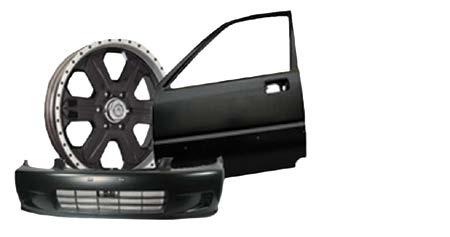
Wisconsin state transportation officials announced a large uptick in unlawful activities by outof-state used-car wholesalers, ranging from falsifying vehicle title information to rolling back odometers, according to a report by the Wisconsin State Journal.
Wisconsin, unique in its licensing of vehicle wholesale companies, has recently seen these entities exploit their positions. These wholesalers, which supply vehicles to various sectors of the automotive industry, are barred from direct sales to consumers and are mandated to maintain a physical presence within the state. However, the Department of Transportation (DOT) has
of state business facilities.
Some wholesalers have been discovered selling vehicles directly to the public and manipulating odometer readings to deceive buyers. In two cases, wholesalers collectively dialed back more than 6 million miles on 64 vehicles, averaging a rollback of more than 93,000 miles per vehicle. Techniques for such fraud include replacing the odometer’s instrument cluster with one displaying lower mileage and tampering with the vehicle’s computer systems.
From July 2019 to January 2024, investigations unveiled wholesalers had reduced odometer readings by more than 161 million miles across
verifying business practices and taking corrective action,” Tommy Winkler, administrator of the Wisconsin DMV, said in a statement. “However, the tremendous growth in the number wholesale dealers, many of whom are out-of-state dealer owners, puts consumers at risk from unscrupulous businesses who abuse their wholesale license. Not only are consumers hurt, Wisconsin dealers who do business the right way are getting a bad name from those who abuse their wholesale license.”
Central to this fraudulent scheme are centralized dealer operations (CDOs), large warehouse spaces that serve as nominal business fronts for
PPG is the only coatings company to earn a spot on Barron’s 100 Most Sustainable Companies list, ranking 43rd among the 1,000 largest publicly traded U.S. firms, recognizing PPG’s dedication to environmental, social and governance (ESG) excellence.
To make the list, Barron’s and Calvert Research and Management rank companies on their performance in five primary categories: shareholders, employees, customers, community and the planet, across 230 ESG performance indicators. Companies receive a score from zero to 100 based on their performance within each category. PPG received a final score of 70, placing it in the top 5% of all evaluated companies.
PPG’s journey toward
 PPG Ranked on Barron’s Sustainability List
PPG Ranked on Barron’s Sustainability List
February saw a resurgence in new vehicle inventory, from 2.54 million units in January to 2.69 million units, coupled with a noteworthy decrease in pricing, according to data from Cloud Theory, a provider of real-time automotive data insights. The surge also surpassed the December figures of 2.64 million.
Following a temporary decline in January, new vehicles sold also saw a strong recovery in February, reaching 1.06 million, a 13% month-over-month increase.
Cloud Theory anticipates this upward trend to continue, forecasting a movement of 1.10 million vehicles in March, matching the peak levels observed over the past year.
While inventory and movement are on the rise, vehicle pricing is experiencing a downward trajectory. For the first time in more than a year, prices have dipped below the $50,000 mark, although the rate of decline has decelerated over the recent months.
“As expected, the new vehicle market shook off the January declines that are typically seen as a new year kicks off,” said Rick Wainschel, vice president, data science and analytics at Cloud Theory. “The growth in both supply and demand is a welcome sign, though the former is still increasing faster than the latter over the long haul, which points to a selling environment that will continue to be challenging.”
Cloud Theory’s proprietary Inventory Efficiency Index reveals a stable month-overmonth scenario, with Toyota maintaining its lead, followed by Honda and Cadillac. General Motors, with Chevrolet rising to seventh and GMC to eighth, demonstrates efficiency across its diverse portfolio.
“GM’s performance is a testament to an OEM’s ability to achieve efficiency, regardless of its size,” said Ron Boe , chief revenue officer at Cloud Theory.



After extensive negotiations, UAW Local 862, representing almost 9,000 workers at Ford’s Kentucky Truck Plant in Louisville, announced Feb. 21 it successfully brokered a tentative local agreement with the automaker.
Workers at Ford’s most profitable plant were set to walk off the job at 12:01 a.m. Feb 23 over local issues related to skilled trades, health and safety,
and ergonomics. The tentative deal addresses these and other core issues of concern to KTP autoworkers, the UAW said in a press release.
The UAW said there are dozens of remaining open local agreements across the Big Three automakers. National contracts were ratified last fall after the union’s Stand Up Strike secured record contracts.
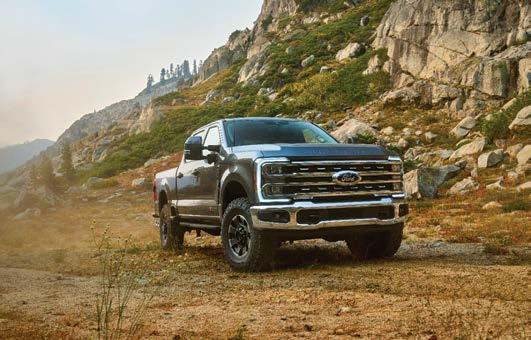

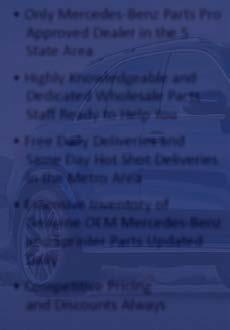
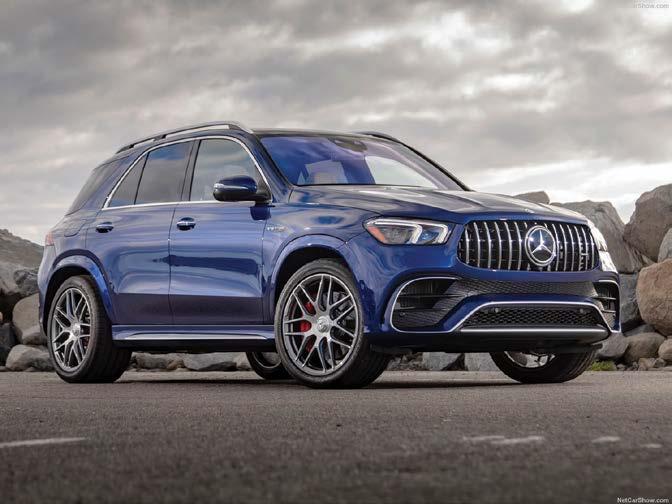






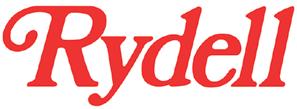



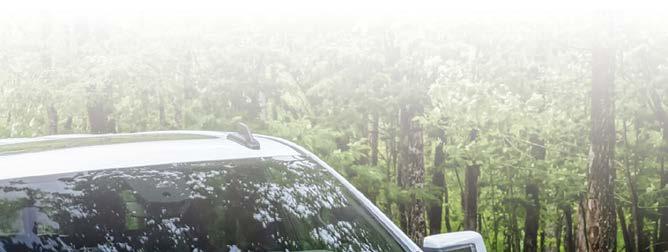


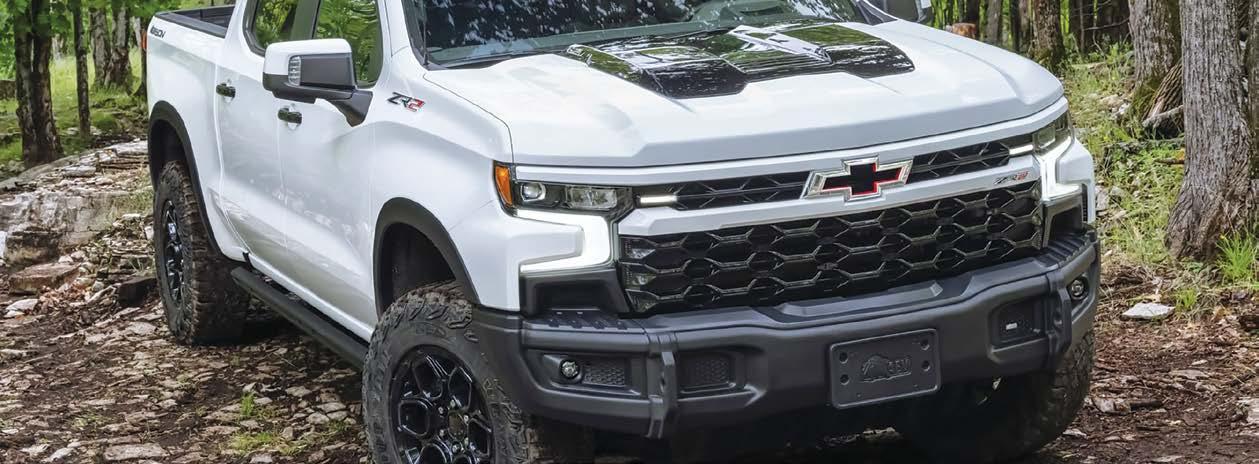




Ohio student drivers might no longer have to practice with licensed driving instructors.
A bill in the House of Representatives would replace the eight hours of driving with a certified instructor with an app as long as a parent is in the car.
“Current law prohibits parents from providing eight hours of in-car instruction,” said Rep. Darrell Kick, R-Loudonville. “This legislation will change this prevision to allow it if the parents are using an electronic education device or application approved by the Department of Public Safety.”
Driving students must have 24 hours of classroom instruction, 50 hours of parent coaching and eight hours of in-car driving with a licensed instructor. The total cost can generally be upward of $300.
Kick and cosponsor Roy Klopfenstein, R-Haviland, said new technology is being developed to help with the parent coaching and the instructor training. The app

would check if the correct number of practice hours is done, give advice on improving driving skills, and assess how well the skills are mastered.
The two said the software is expected to be able to be used on a smartphone and through a car’s computer system and would reduce costs for families.
“This change to driving instruction is completely permissive, and if any safety concerns arise, DPS maintains the ability to conduct evaluations of the application and would have the authority to approve or deny any application,” Klopfenstein said.
House Bill 425 has yet to be assigned to a committee. A companion bill, Senate Bill 218, also awaits committee action.


Mitchell, an Enlyte company, and Classic Collision, LLC, one of the top four largest MSOs in the nation, on Feb. 29 announced they have signed a multi-year agreement. The enterprise licensing agreement gives all current and future Classic Collision locations access to Mitchell Cloud Estimating with Integrated Repair Procedures as well as the company’s Paintless Dent Repair (PDR) calculator.
A Mitchell customer since 2013, Classic Collision already has nearly 100 repair facilities using Mitchell Cloud Estimating. The remaining locations will be onboarded by the end of Q1 2024.
“Classic Collision has experienced exponential growth over the last few years, and we are thrilled to support the organization’s ongoing expansion,” said Debbie Day, executive vice president and general manager of Mitchell’s Auto Physical Damage division. “With the aid of Mitchell’s innovative technology, Classic Collision can take advantage of new tools designed to help return customers to the road safely while continuing


to grow its U.S. footprint.”
Released in 2017, Mitchell Cloud Estimating allows repairers to write comprehensive appraisals of collision-damaged passenger, commercial and specialty vehicles. They can then upload photos, submit estimates and communicate with insurance partners and customers using the Mitchell platform.
Created to significantly reduce time spent on research, Mitchell Cloud Estimating features Integrated Repair Procedures that surface OEM information critical to restoring the vehicle to preaccident condition as the estimate is written. With the company’s PDR calculator, estimators can also quickly determine the cost of minor dents, dings and body creases and add them to the appraisal.
Classic Collision is the second U.S. MSO to sign an enterprise license agreement for Mitchell Cloud Estimating. Additional information about the solution is available at www.mitchell.com/ solutions/auto-physical-damage/ estimating/cloud.




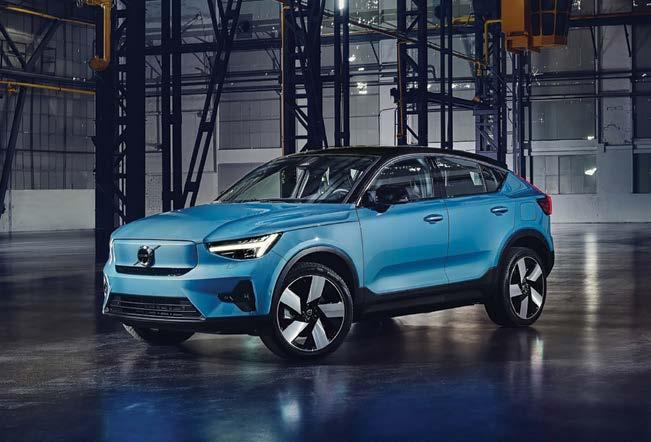

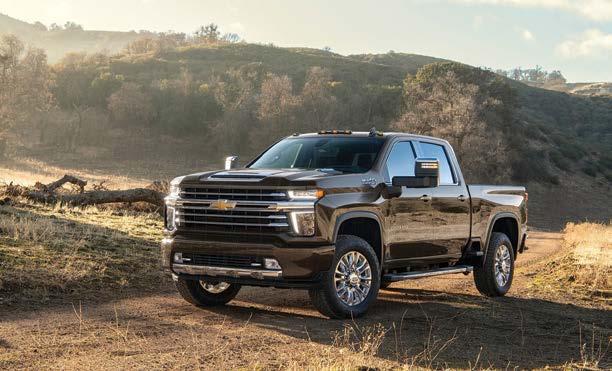
Schaeffler, a motion technology company, announced plans to expand its footprint in the U.S. by building a new manufacturing facility in Dover, OH.
Schaeffler plans to invest more than $230 million in the greenfield manufacturing site, poised to become a hub for producing advanced electric mobility solutions.
“Our new plant will play a pivotal role in shaping our future in the Americas region,” said Marc McGrath , CEO of Schaeffler Americas.
“Dedicated to advancing our innovative product offering, our new Dover, OH, facility will feature state-of-the-art production processes so we can better serve our customers, while also adopting sustainable practices, as we continue to pioneer motion.”
Set to kick off construction in mid-2024 with a completion target in the third quarter of 2025, the facility will initially span approximately 130,000 square feet. It will focus on
manufacturing electric axles for light and medium-duty vehicles, integrating state-of-the-art technology and equipment designed and produced by Schaeffler.
The new plant is strategically located to work with Schaeffler’s existing operations in Wooster, OH, and to facilitate close collaboration with automotive OEMs and suppliers. It is expected to generate around 450 new job opportunities by 2032.
Schaeffler aims to align the plant’s operations with its goal of achieving climate neutrality by 2040.
Schaeffler has 15 plants in the Americas region and five Research and Development locations, with U.S. manufacturing locations in Ohio, South Carolina, Missouri and Connecticut, and has made sizeable investments in the region over the past decade. The U.S. represents a strategic growth market for the global manufacturer.
The U.S. government’s recent shift to offer immediate electric vehicle tax credits at the point of sale has led to a $135 million disbursement to auto dealers within just over a month, Reuters reported.
In previous years, U.S. auto buyers could only benefit from the $7,500 new EV credit or $4,000 used EV credit at tax filing time the following year.
The new policy, which went into effect Jan. 1, allows consumers to transfer the credits directly to car dealers at the time of sale, effectively reducing the purchase price of the vehicle on the spot. The IRS has processed advance payment requests for 17,500 new EVs and 2,000 used vehicles, with more than 11,000 U.S. auto dealers registered for the program.
“One month into implementation of this provision, there is strong demand for this new upfront discount, which will continue momentum in growing this industry in the United States,”
Deputy Treasury Secretary Wally Adeyemo said in a statement.
However, the transition has not been without its challenges. In January, the eligibility for tax credits was revised for several EVs due to new battery sourcing rules, impacting popular models like the Nissan Leaf, some Tesla Model 3s, Chevrolet Blazer EV, Cadillac LYRIQ, Ford Mustang Mach-E and Ford E-Transit. These guidelines, issued by the Treasury in December, aim to decrease the U.S. EV supply chain’s reliance on China, reducing the number of EV models qualifying for tax credits from 43 to 19 at the start of the year.
The August 2022 Inflation Reduction Act law introduced these changes to the EV tax credit system, mandating vehicles must be assembled in North America to qualify and setting income and vehicle price restrictions to ensure the credits benefit a broader range of consumers while promoting domestic production.




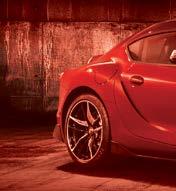

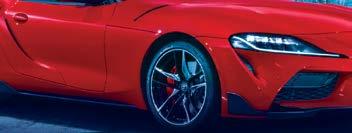


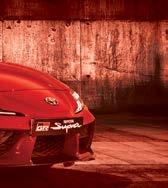

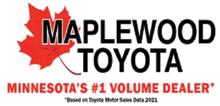
The U.S. Department of Transportation (DOT) opened applications for a funding initiative aimed at bolstering roadway safety across the nation. A total of $1.3 billion is being offered to cities, towns, counties, Tribal governments and Metropolitan Planning Organizations (MPOs) through the Safe Streets and Roads for All (SS4A) grant program.
This initiative, a key component of President Joe Biden’s Bipartisan Infrastructure Law, is designed to support local projects geared towards reducing the number of deaths and serious injuries occurring on the nation’s highways, streets and roads.
“Every community knows some intersection or stretch of road that is dangerous to approach – now we have an opportunity to make them safer,” said U.S. Transportation Secretary Pete Buttigieg. “The Biden-Harris administration is proud to make over $1.2 billion available for projects that can save lives on our roads, from highway redesigns to protected bike lanes, and we invite communities of
DCR Systems is excited to announce the addition of Maria Stump as people development manager. In her new role, Stump focuses on all aspects of working with employees, including hiring and retention, setting up processes, managing training programs and employee development.
Stump graduated from John Carroll University in Cleveland, OH, in 2020 with a management and human resources degree. Her experience includes recruitment and retention, human resources, employee development, business operations, financial services and customer service.
With her interest in people, Stump was looking for an opportunity to assist a company with coaching and development. When she learned about the position at DCR Systems, it sounded like a great fit.
Joining the company without prior knowledge of the collision repair industry, Stump visited five of seven DCR Systems’ locations to introduce herself and explain how she was there to support employees.
every size to apply.”
This announcement comes on the heels of last year’s allocation of $1.7 billion in grants under SS4A, which impacted roadway safety for approximately 70% of the U.S. population, addressing more than 60% of traffic fatalities recorded between 2017 and 2021. With
“Every community knows some intersection or stretch of road that is dangerous to approach – now we have an opportunity to make them safer,”
PETE BUTTIGIEG U.S. TRANSPORTATION SECRETARY
more than $1 billion available this year, the DOT is encouraging communities, especially those that have not previously applied, to take advantage of this opportunity. The program is placing a special emphasis on communities with higher fatality rates, offering them additional award considerations.
The SS4A initiative not only
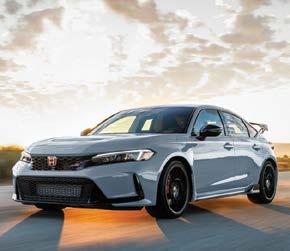
supports the development of road safety action plans but also facilitates the implementation of interventions aimed at improving unsafe roadway corridors. This includes experimenting with safety features like separated bicycle lanes and curb extensions at intersections.
The application process has been designed to increase accessibility, especially for smaller communities, Tribal governments and newcomers to federal funding. This includes a simplified application process, multiple deadlines, a pre-application review to determine eligibility for implementation funding, and specific guidance for using Tribal Transportation Program funds as a local match.
Applications for implementation grants are due May 16. Planning and demonstration grant applicants will have three opportunities to apply — the deadlines are April 4, May 16 and Aug. 29.
For further information, visit www.transportation.gov/grants/ SS4A.
PGW Auto Glass, LLC, announced it acquired AutoglassCRM, a provider of VIN decoding and point-of-sale software, to equip automotive glass installers with cuttingedge tools necessary to thrive in a competitive market.
“This acquisition supports our strategic mission to provide our customers with the best technologies to compete in this increasingly complex industry,” said Todd Fencak , CEO of PGW Auto Glass. “We are excited to announce the launch of ‘Everything Autoglass,’ a comprehensive set of business tools that will help our customers succeed. Everything Autoglass was created to provide installers with a lowcost, advanced technology that encompasses all aspects of shop management.”
“Everything Autoglass” promises a low-cost, advanced technology solution that covers all aspects of shop management. Visit www. everythingautoglass.com to explore the capabilities.
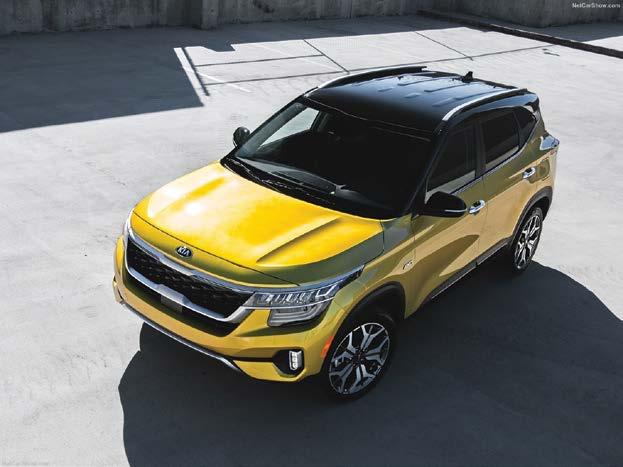
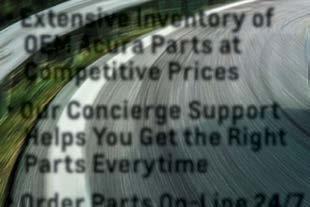


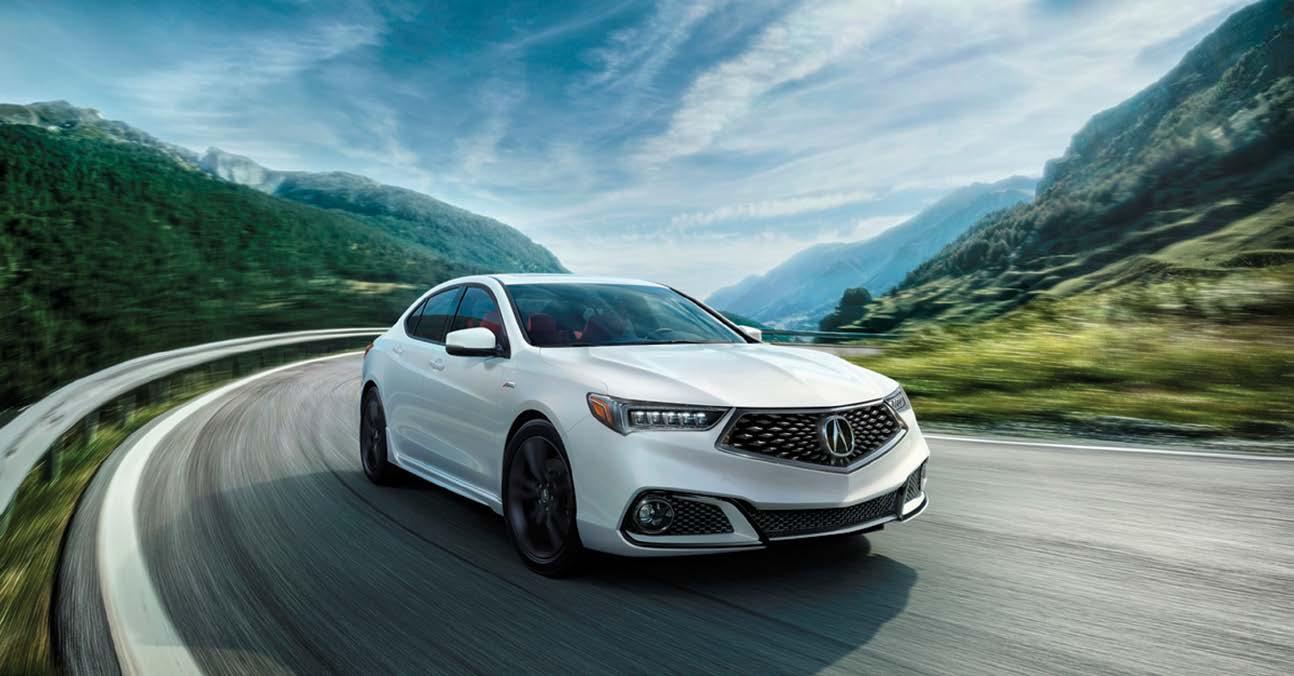


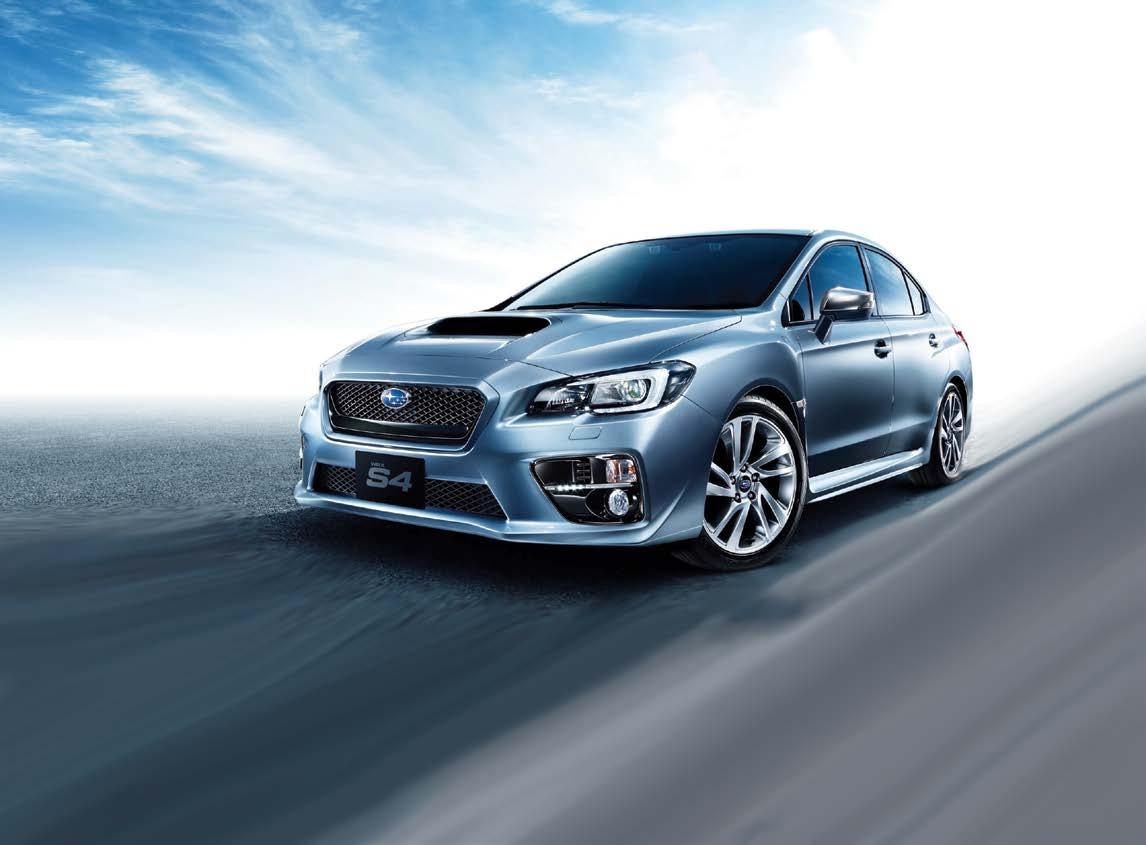
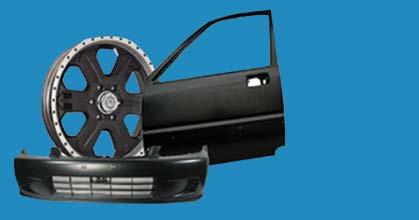
Lithia & Driveway boosted its presence in the North Central Region of Minnesota by acquiring Carousel Motor Group, composed mostly of luxury brands, expected to generate more than $900 million in annual revenue.
welcome Carousel’s highperforming team members to the Lithia & Driveway family.”
Carousel comprises nine stores in the greater Twin Cities. Carousel Hudson Ford is one of the largest locations in Wisconsin and Lithia

“We are excited to expand into the Twin Cities with Carousel Motor Group and its successful award-winning stores,” said Bryan DeBoer, Lithia & Driveway president and CEO. “Building out our network in the North Central Region, our least-dense region, allows us to foster longterm customer relationships and provide our omni-channel solutions, offering a full ownership lifecycle to this market. We
& Driveway’s first Ford store in the state. This location adds more brand offerings to Lithia & Driveway’s existing footprint after purchasing Wilde Automotive Group in October 2022.
The acquisition was financed using existing on-balance sheet capacity. With the addition of Carousel Motor Group, Lithia & Driveway’s total year-to-date expected annualized revenue surpasses $5.4 billion.
In a lawsuit filed in Washington State, USAA is facing accusations of systematically denying medical payments to its members involved in auto accidents, reported the San Antonio Express-News.
USAA relies on a third-party contractor, Auto Injury Solutions Inc., to assess which medical bills should be paid. This process, according to USAA, aims to filter out excessive, unrelated and duplicate charges, thereby keeping coverage costs affordable for its members. However, critics argue this method, which heavily involves automated computer processes, undermines the insurer’s duty to conduct thorough and independent investigations into claims.
The lawsuit, filed by two women insured under different USAA subsidiaries, challenges the insurer’s delegation of claim evaluations to the thirdparty contractor. They argue this approach leads to unjust reductions or outright denials
of payments for necessary health care expenses, based on reviews they deem a “sham.” The plaintiffs are seeking to make the lawsuit, which has been moved to a federal court in Washington, a class action lawsuit.
USAA insists its procedures are designed to protect members by identifying unwarranted charges, thus preserving insurance limits for legitimate medical expenses. Critics, including attorneys for the plaintiffs and consumer advocacy groups, argue such practices prioritize cost savings over patient care, often leaving insured members to bear the brunt of unpaid medical bills.
This is not the first time USAA has faced such allegations. Over the past two decades, the insurer has been involved in numerous lawsuits accusing it of similar practices. While many of these cases have been dismissed, arbitrated or settled, the recurring theme of denied claims has attracted regulatory attention and public scrutiny.



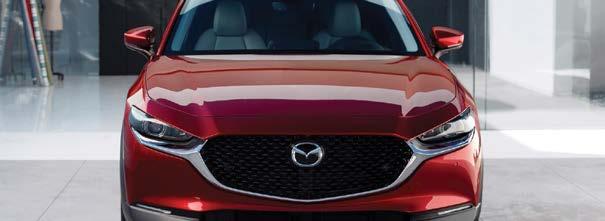













•
•
276
Parts
Hours:
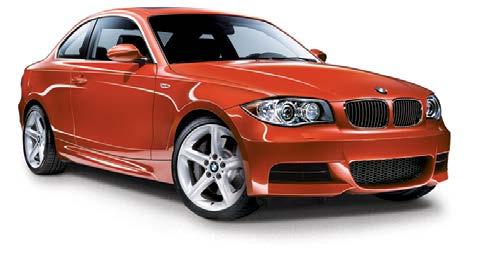
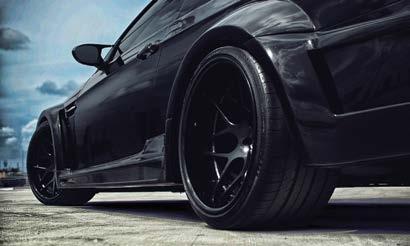
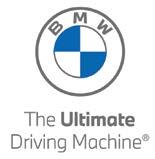

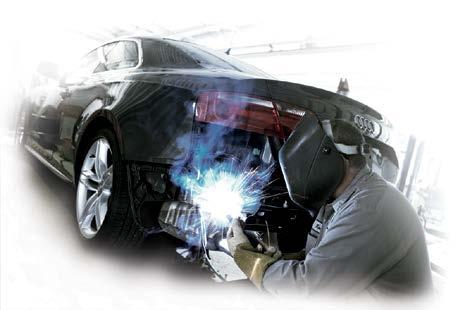
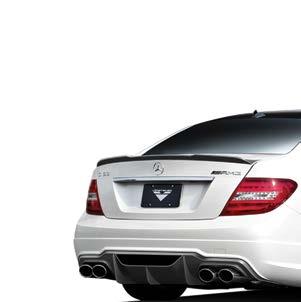
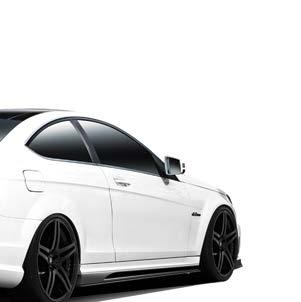

In a year when Americans hit the road more than the last, the National Safety Council (NSC) has reported a counterintuitive trend: a significant decrease in motor-vehicle deaths in 2023. Despite a 2.1% increase in mileage from 2022, fatalities dropped by 4%, totaling 44,450 deaths in 2023, down from 46,270 the previous year. This decline in deaths comes alongside a decrease in the estimated mileage death rate, which fell to 1.36 deaths per 100 million vehicle miles traveled, marking a 6.2% decrease from 2022 and a notable 9.3% drop compared to 2021.
The National Center for Health Statistics (NCHS) reports the official mortality estimates for the U.S. and is used as a comparison to judge the accuracy of NSC preliminary estimates. The publication of NCHS final mortality estimates generally lags about one year or more. The most recent NCHS final estimate shows 46,980 deaths occurring in 2021. This compares to the NSC initial estimate of 46,020, with a difference of 2%.
State-specific data reveal a
contrast across the country. Twelve states experienced a decrease in motor-vehicle deaths by 10% or more, with Alaska leading the way at a 31% reduction. Meanwhile, seven states and Washington, D.C., saw increases of 10% or more, with D.C. witnessing a 42% surge in fatalities. The NSC’s methodology for calculating these estimates involves collecting data from all 50 states and D.C., relying on state Department of Transportation offices and data reporters who also contribute to the National Highway Traffic Safety Administration s Fatality Analysis Reporting System (FARS). This comprehensive approach ensures the NSC’s estimates are both timely and reflective of trends across the nation.
The reduction in motor-vehicle deaths, despite an increase in overall mileage, may reflect the impact of safer vehicle technologies, improved road safety measures, or changes in driver behavior. However, the increase in fatalities in certain states highlights the ongoing challenges in achieving nationwide road safety improvements.
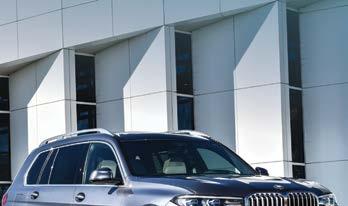


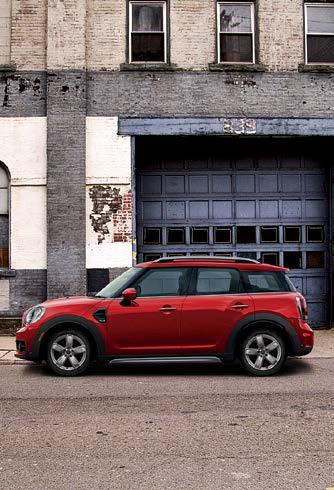
The Michigan Infrastructure Office (MIO), in partnership with the Michigan Department of Transportation, announced nearly $23 million has been awarded to more than 40 locations across the state under the National Electric Vehicle Infrastructure (NEVI) Formula Program, increasing EV accessibility for Michiganders. With the passage of President Joe Biden’s Bipartisan Infrastructure Law (BIL), Michigan stands to receive approximately $110 million in NEVI Formula Program funding over the next five years to expand EV charging infrastructure statewide. The first round of funding includes 41 planned charging stations in every region across the state, from Detroit and Sault Ste. Marie to Benton Harbor and Lansing. “As Michigan continues to lead the nation in advancing clean energy and sustainable infrastructure, the National Electric Vehicle Infrastructure Program represents a significant milestone in our state’s journey towards a greener future,” said Zachary Kolodin, Michigan’s chief infrastructure officer and director of the Michigan Infrastructure Office. “By
strategically deploying EV charging infrastructure, we are not only supporting the widespread adoption of electric vehicles but also driving economic growth, job creation and environmental stewardship.” Selected locations have five years to complete their projects, with construction on some expected to be completed this year. These projects will change Michigan’s transportation landscape, making EV charging more accessible to residents. The NEVI Formula Program complements existing clean energy initiatives in Michigan, including the MI Healthy Climate Plan and Charge Up Michigan. Michigan has secured more than $150 million through Charge Up Michigan and the BIL to build Michigan’s electric vehicle charging network, which now includes more than 2,600 EV chargers. “The award of these NEVI funds will help the MDOT team continue a tradition of enhancing mobility through creative thinking,” said MDOT Director Bradley C. Wieferich. “Expanding our electric vehicle charging network will help Michigan drivers as well as the millions of tourists who explore our beautiful state each year.”




Market research firm Gartner announced March 7 that battery electric vehicles (EVs) are set to become more cost-effective to produce than comparable internal combustion engine (ICE) vehicles by 2027, Reuters reported. The milestone is attributed to innovative manufacturing methods poised to drastically reduce production costs.
Gartner’s research showed these cost reductions will outpace the decreasing costs of EV batteries, which currently represent about 40% of an electric vehicle’s price.
“Innovations that simplify production costs, such as centralized vehicle architecture or the introduction of gigacastings, are pivotal in reducing manufacturing costs and assembly time,” the firm stated.
Gigacastings, a technique popularized by Tesla, involve large casting machines that manufacture substantial single pieces of vehicle underbodies. This method not only
streamlines production but also minimizes the labor required from robots, enhancing overall efficiency.
“This [new technology] means BEVs will reach ICE cost parity much faster than initially expected, but at the same time, it will make some repairs of BEVs considerably costlier,”
PEDRO PACHECO VICE PRESIDENT OF RESEARCH AT GARTNER
“This [new technology] means BEVs will reach ICE cost parity much faster than initially expected, but at the same time, it will make some repairs of BEVs considerably costlier,” Pedro Pacheco , vice president of research at Gartner, told Reuters.
However, the report also highlights a potential downside to these advancements. The
average cost of repairing an EV’s body and battery after a severe accident is projected to surge by 30% by 2027. This increase could result in more vehicles being declared total losses after collisions, as repair costs may exceed their residual values.
Consumer apprehension regarding the high repair costs of EVs has already been noted as a concern. Gartner warns of a potential backlash if production cost savings lead to escalated repair expenses. Additionally, the firm anticipates a consolidation in the EV industry, with an estimated 15% of EV companies founded in the last decade facing acquisition or bankruptcy by 2027.
Despite these challenges, Pacheco remains optimistic about the EV sector’s future. “This does not mean the EV sector is crumbling. It is simply entering a new phase where companies with superior products and services will prevail,” he said.
The Collision Industry Electronic Commerce Association (CIECA) announced its 15th annual conference, CONNEX 2024: “The Intersection of Data & Mobility,” will be held Sept. 24-25 at the MGM Grand Detroit hotel in Detroit, MI.
During the two-day event, insightful speakers will discuss where technology and businesses are headed and what the collision industry can do to prepare. A highlight of the event will be an exclusive tour of the American Center for Mobility. The conference will also include networking opportunities, a vehicle gifting as part of the National Auto Body Council Recycled Rides® program, and a celebration of CIECA’s 30th anniversary of creating data integration standards.
All industry stakeholders, including CIECA members and non-members, are invited to attend. The conference agenda will be announced in the spring.
For information about early bird conference registration rates, visit cieca.zohobackstage.com/ CONNEX2024#/tickets?lang=en.
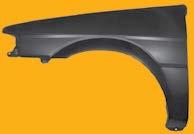


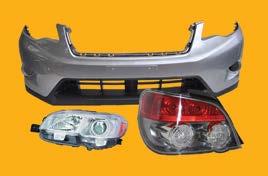

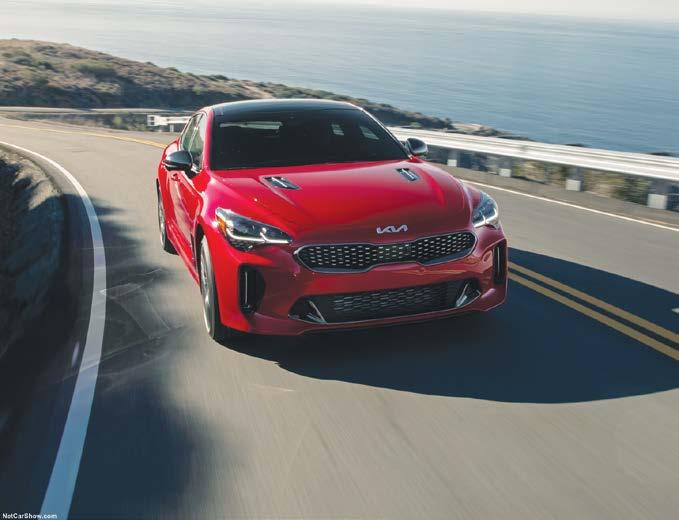
Several U.S. auto retailers have reported a downturn in profits in the last quarter of 2023, largely attributed to the implementation of price cuts and incentives aimed at attracting buyers in an uncertain economic environment, which has subsequently impacted newvehicle margins, Reuters reported.
Over the past few years, auto dealers enjoyed elevated prices, benefiting from a strong demand for new vehicles coupled with limited supplies due to supply chain disruptions. However, the scenario has changed with higher vehicle production smoothing out supply issues, thus reducing dealer margins, according to statements made by auto retail chain executives.
A report by Cox Automotive highlighted the growing trend of discounts and incentives on new vehicles, which is exerting a downward pressure on both pricing and profitability for dealers and automakers.
“Discounts and incentives on new-vehicles continue to rise, and that is putting downward pressure on pricing and profitability for dealers and automakers alike,” the report noted.
Despite the lowered prices and increased incentives, the pace of U.S. new-vehicle sales has decelerated in the initial month of the year. The automotive sector is also grappling with challenges related to electric vehicles (EVs), which necessitate higher marketing expenses due to their higher maintenance costs and lower resale values. Adding to the industry’s woes, EV prices in the U.S. have seen significant reductions over the past year, predominantly driven by price cuts at leading manufacturers like Tesla.
On the financial front, AutoNation’s CEO Mike Manley revealed during an earnings call that new vehicle margins continued to decline, albeit at a modest rate of about $120 per month in

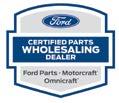

the fourth quarter, a slower pace compared to previous quarters. Lithia Motors also experienced a dip in new vehicle margin to 7.9%.
Despite these challenges, retailers are finding a silver lining in their aftermarket service units, which have boosted profits from maintenance services for new vehicles. The increasing complexity of vehicles, due to advanced technology and software, has augmented the demand for specialized maintenance services.
The impact of these industrywide trends was evident in the stock market, with shares of Sonic Automotive, which fell short of fourth quarter estimates, witnessing a 5% decline. Meanwhile, AutoNation’s shares saw a marginal decrease, and Lithia’s shares experienced
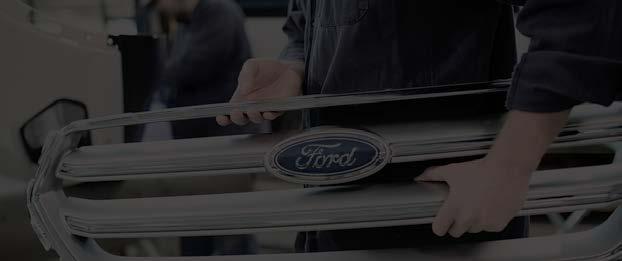
MICHIGAN
Gabus Ford
DES MOINES
800-362-1679
515-270-9095
515-270-5008 Fax
Hours: M-F 7-6; Sat 8-4:30 parts@charlesgabus.com
Rusty Eck Ford WICHITA
316-685-9131
Jack Demmer Ford
SOUTHEAST
734-721-2550
734-721-0980 Fax
Hours: M-F 8-6 parts@demmer.com
ANN ARBOR
Car ADAS Solutions announced Nate Thomsen joined the company as manager of integrations and support. In his new role, Thomsen will help open new calibration centers and support licensees to ensure their success. This includes providing facility certification, on-site technician development, an overview of shop set-up, and sharing calibration knowledge through body shop visits.
Based out of Seattle, WA, Thomsen has more than 25 years of experience in the collision repair industry. After serving in the U.S. Navy from 1994-1997, he was hired as a car detailer in 1998 and then worked for a small MSO in Seattle. Since then, he has held numerous positions in the industry, including regional vice president of operations for a large MSO, where he met Peeters
As the manager of integrations and support, Thomsen said it will
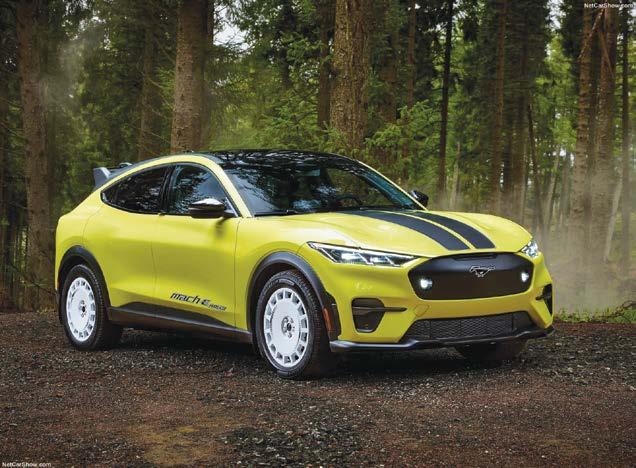
OHIO
Dick Masheter Ford COLUMBUS
614-861-3971
614-861-8251 Fax
Hours: M-F 7-6 parts@masheter.com
WISCONSIN
Hiller Ford FRANKLIN
414-425-3085
800-462-4685
414-529-1014 Fax
Hours: M-F 7:30-5; Sat 7:30-12pm parts@hillerford.com
Hours: M-F 8-5 KANSAS
734-996-2411
734-996-5917 Fax
Hours: M-F 8-6; Sat 8-2 wholesaleparts@varsityford.com
316-685-7759 Fax
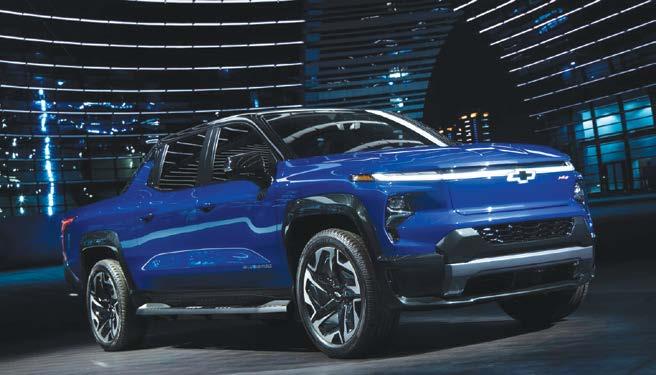
Illinois
Piehl Motors PRINCETON
800-845-8964 815-875-4411
815-875-4293 Fax
M-F 7:30 am - 5:30 pm Sat 7:30 am - 12 pm p.lenhausen@piehlmotors.com
Indiana
Schepel Buick GMC MERRILLVILLE
800-588-7757
219-769-7757
219-755-0339 Fax
M-F 7:30 am - 5 pm parts@schepel.com
Iowa
Shottenkirk Automotive
FORT MADISON
877-310-0513
888-945-3729 Fax
M-F 7:30 am - 5 pm gmparts@shottenkirk.com
Michigan
Ed Rinke Chevrolet Buick GMC CENTER LINE
586-497-4100
586-754-5030 Fax
M, Th 8 am - 9 pm
T, W, F 8 am - 6 pm
LaFontaine Buick GMC Cadillac HIGHLAND
877-552-2580
734-793-6000
734-793-1101 /1102 Fax
M-F 7 am - 6 pm Sat 8 am - 2 pm kmason@lafontaine.com
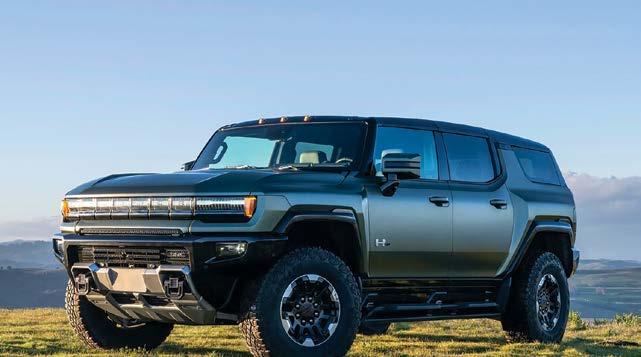
Minnesota
Mills Parts Center WILLMAR
800-247-1158
866-235-6700 Fax
M-F 8 am - 5:30 pm
Missouri
Bob McCosh GM COLUMBIA
800-800-8071
573-449-4103
573-441-5632 Fax
M-F 7 am - 6 pm
Sat 7 am - 3 pm gmparts@bmcmail.com
North Dakota
Rydell
Chevrolet Buick GMC GRAND FORKS
800-354-7278
701-746-0412
701-335-2556 24 Hr Fax
M-F 7am - 6 pm parts@rydellcars.com www.rydellcars.com
Ohio
Classic Chevrolet MENTOR
800-352-7276
800-352-7275 24-HR Fax
M-F 8 am - 6 pm
Sat 8 am - 3pm
Ohio
#1 Cochran Chevy Buick GMC
YOUNGSTOWN
800-476-0760
330-726-2297
330-726-0709 Fax
Mon-Thu 7am-6pm
Fri 7am-5:30pm Sat 7am-3pm matt.fullerton@cochran.com
Jake Sweeney Chevrolet
SPRINGDALE
800-582-5253
513-782-2829
513-782-2846 Fax
M-F 7:30 am – 6 pm Sat 8 am – 2 pm
cscott@jakesweeney.com
www.jakesweeneychevy.com
Joseph Chevrolet
CINCINNATI
800-752-1423
513-741-6735
513-741-3814 Fax
M-F 7:30 am – 5:30 pm Sat 7:30 am – Noon josephgmparts@yahoo.com
Wisconsin
Ivan Gandrud
Chevrolet
GREEN BAY
800-242-2844
920-468-3658
920-468-3673 Fax
M-F 7 am - 7 pm
Sat 7 am - 2 pm parts@gandrud.com
Car ADAS Solutions announced its ADAS Calibration Technician Certification Program has been qualified by I-CAR for Industry Training Alliance course credits, becoming one of only 20+ such alliance partners nationwide. Car ADAS Solutions’ program was developed in 2020 as part of the company’s ADAS solution for the industry.
“As an I-CAR sustaining partner, we are proud to have our program be recognized as an I-CAR Industry Training Alliance course,” said Greg Peeters , CEO of Car ADAS Solutions. “Utilizing I-CAR’s online courses as a prerequisite for our 80-hour hands-on training program allows us to focus on tactile learning, including calibration, programming, diagnostic and repair skills.”
Peeters said this enables Car ADAS Solutions to develop a solid technical foundation that team members continue to build on through the company’s technical support and quality assurance programs.
“We value our partnership with I-CAR, their leadership, and the great work they are doing for our industry,” he added.
The ASE Education Foundation announced its 2024 ASE Instructor Training Conference will be held July 15-18 at the Hyatt Regency Hotel in Minneapolis, MN. This event, the largest of its kind, will bring together hundreds of high school and college instructors specializing in auto, truck and collision repair from across the country.
The conference promises an intensive learning experience, offering more than 20 hours of technical update training across distinct tracks tailored for auto, medium/heavy truck, and collision repair instructors, ensuring educators are not only updated with the latest industry standards but also equipped with the knowledge to enhance their teaching methodologies and student outcomes.
The cost for instructors from ASE-accredited programs is $700 per person while the cost for instructors from non-accredited programs is $800 each.
Visit aseeducationfoundation. org/events/ase-instructor-trainingconference.
“We stand for quality training, not just I-CAR training,” said John Van Alstyne , CEO and president of I-CAR. “As we proactively respond to the changes ADAS is driving in the collision repair industry, we embrace the opportunity to add our sustaining partner, Car ADAS Solutions, to the I-CAR Industry Training Alliance. This recognition allows technicians and shops that invest their resources into training to apply their achievement to the
ultimate designations of I-CAR Platinum and Gold Class.”
The I-CAR Industry Training Alliance acknowledges the accomplishments of training through qualified providers. Technicians can train with I-CAR and alliance partners, receiving credits for approved courses, and facilitating their attainment of Platinum and Gold Class certifications. There is no additional cost to the learner or
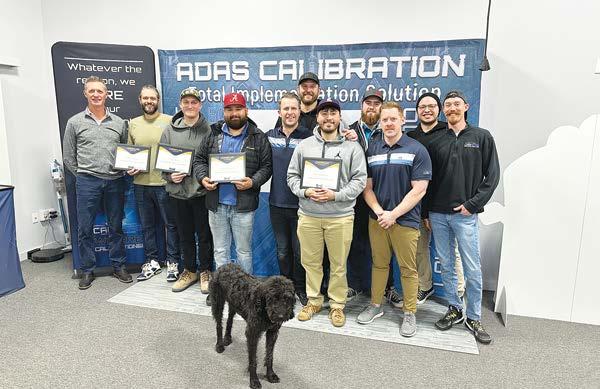
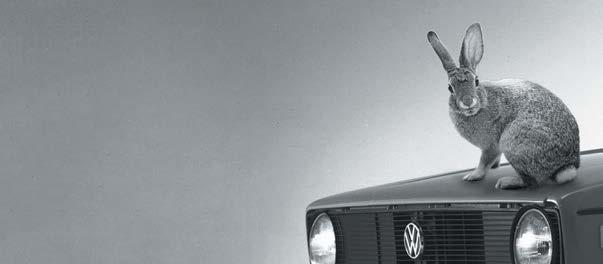
800-323-0022
Direct
Fax:
MISSOURI
Molle
M-F
collision repair facility.
“Not only does this reduce redundant training, but it also greatly benefits individuals and businesses by simplifying the education process and improving overall industry efficiency while encouraging a continuous learning mindset for the ultimate benefit and safety of the consumer,” explained Van Alstyne. “It is a winwin for the industry.”
To qualify, alliance partners must be I-CAR sustaining partners and hold accreditation from a recognized third-party accreditor, like International Accreditors for Continuing Education and Training (IACET), Accrediting Council for Continuing Education & Training (ACCET) or Learning and Performance Institute (LPI), or be an Automotive Service Excellence (ASE)-accredited trainer.
They must also offer courses that meet the nonprofit organization’s industry knowledge and skills protocol. The protocol sets educational knowledge and skills objectives necessary to perform complete, safe and quality repairs, as defined by the collision repair industry in cooperation with I-CAR.
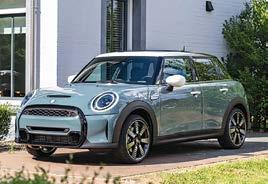
“Through Industry Training Alliance partnerships with Car ADAS and other collaborators, I-CAR strives to improve and simplify access to education opportunities, ensuring technicians possess the knowledge and skills needed to adapt to industry changes,” said Van Alstyne.
In recognition of the increasing significance of ADAS expertise in the industry, I-CAR introduced a professional development path for ADAS technicians in 2022, offering Platinum recognition under the newly launched ADAS technician role. Van Alstyne said this acknowledged the growing importance of ADAS-related roles and provided a structured path for technicians to enhance their skills in this area, underscoring the need for specialized training in response to the prevalence of ADAS-equipped vehicles.
It is currently an “optional role” not required for shop’s Gold Class achievement; Gold Class does require a selection of foundational ADAS-related courses to help ensure shops are aware of repair requirements.
“Through partnerships with industry leaders like Car ADAS, technicians have more opportunities to stay updated on the latest
technology developments, aligning with I-CAR’s ongoing efforts to attract and deploy skilled technician talent throughout the industry,” he added.
For individuals striving to achieve Platinum as evidence of their expertise in the growing field of ADAS, Van Alstyne said having options for completing the capstone course requirement of a hands-on course is an advantage that collision repair professionals deserve.
“I-CAR champions technical education like Car ADAS Solutions provides that supports and complements the nonprofit organization’s vision that every person in the collision repair industry has the information, knowledge and skills required to perform complete, safe and quality repairs for the ultimate benefit of the consumer,” noted Van Alstyne.
He said addressing the demands of ADAS repairs, one of the fastest growing and most technically demanding aspects of the collision repair industry, underscores the importance of preparedness among repair shops nationwide.
“Shops prioritizing ADAS training and related competencies will be well-positioned to lead repair services in their local markets,” he said.
The U.S. The 2024 KPA Dealership Trust Survey, conducted by The Harris Poll, found about one-third of Americans have experienced things like deceptive selling, hidden fees or dishonest salespeople. Yet more than three-quarters of Americans –76% – don’t trust dealerships to be honest about pricing.
Regarding experience with dealerships:
• 34% have felt pressured to purchase add-ons
• 30% agreed on the price and when they went to sign the paperwork found there were hidden fees
• 28% felt like the salesperson was trying to “trick” them into a deal
• 29% left one dealership and went to another because they didn’t think they were being honest in their pricing
Regarding perceptions of dealerships:
• 86% are concerned about hidden fees when buying/leasing a vehicle
• 76% don’t trust car dealerships to be honest about pricing
• 84% say price transparency is
lacking at most car dealerships
The survey results come on the heels of the announcement of the Federal Trade Commission’s (FTC) Combating Auto Retail Scams (CARS) Rule, which would protect consumers from deceptive selling or leasing practices. Over the past year, the FTC enacted additional rules for dealerships around pricing transparency, financing, unnecessary add-ons and keeping customer information secure. Dealerships that don’t follow these laws and regulations can face heavy fines from the FTC at more than $50,000 per violation, which is roughly equal to the cost of an average car ($48,000) on the sales lot. Beyond fines, violations can also make dealers appear less trustworthy to potential customers.
“Buying or leasing a vehicle is a major financial decision for many Americans,” said Chris Fanning, CEO of KPA. “KPA partners with dealerships to help them operate in compliance with current regulations while also building trust with their customers and earning their dollars.”

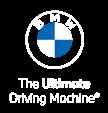
Tractable has accused CCC Intelligent Solutions of violating federal antitrust laws in a court filing March 11, alleging CCC is using its 85% market share of the estimatics market to limit customer choice and raise prices that ultimately impact the consumer.
Estimatics products can be used to identify automotive damage, diagnose necessary repairs and estimate the costs of such repairs.
Tractable leveled the charges in its motion for leave to file an amended answer and counterclaim, filed as part of ongoing litigation between the two companies in the U.S. District Court for the Northern District of Illinois.
“Today, Tractable took legal action against CCC, challenging what Tractable believes is anticompetitive conduct that harms the auto collision ecosystem. Tractable took this legal action to enable choice and best-of-breed technologies in the ecosystem: for insurers, repairers, service
providers and everyday Americans, who pay for auto insurance as a life necessity,” said Alex Dalyac , founder and CEO of Tractable.
The litigation originated in October 2018, when CCC filed a lawsuit against Tractable, claiming it used a fake company named “JA Appraisals” and a person named “Jason Chen” — an alias for Xing Xin, Tractable’s former head of product development — to get a license to gain access to CCC’s proprietary platforms, including CCC ONE.
CCC alleged over the next 14 months, Tractable used CCC ONE to create test files with fictitious inputs to generate unusual estimates that did not follow “the conventional appraiser workflow.” Instead of finalizing the estimates in the “workfiles” and transmitting them to insurers, CCC alleged Tractable created the files to “replicate (at least in part) CCC ONE’s proprietary information and algorithms,” in violation of JA Appraisal’s
licensing agreement, which was “conditioned on the independent appraiser working on an assignment related to an insurance claim for the purpose of generating an estimate of vehicle damage.” CCC terminated its license with JA Appraisal on Oct. 26, 2018.
Tractable was charged with seven counts, including violation of the Computer Fraud and Abuse Act, violation of the Defend Trade Secrets Act of 2016, violation of the Illinois Trade Secrets Act of 2016, trademark infringement in violation of the Lanham Act, false designation of origin in violation of the Lanham Act, violation of the Illinois Uniform Deceptive Trade Practices Act, and common law fraud.
In September 2022, Tractable was granted a motion to dismiss two of those counts: violation of the Computer Fraud and Abuse Act and violation of the Illinois Uniform Deceptive Trade Practices Act.

Audi Exchange
Highland Park
847.432.5880
847.432.5708 Fax
audi.parts@audiexchange.com
Audi Kalamazoo
Kalamazoo
800.323.0022 Toll Free
269.978.0191 Direct
269.342.0065 Fax M-F 8am-5:30pm www.maplehillauto.com
MISSOURI
Kansas City Audi
Kansas City
866.949.9500 Toll Free 816.941.4969 Direct 816.942.3156 Fax M-F 7am-6pm; Sat 8am-5pm ewolf@molleautogroup.com jbarczak@mollevwgroup.com
OHIO
Audi Columbus Columbus
614.552.5490
M-F 7:30am-6pm Sat 8am-12pm
wholesaleparts@byersauto.com
AkzoNobel announced the launch of Refinish+, a cuttingedge digital platform designed to enhance the operational efficiency and profitability of body shops. This innovative solution offers a single access point to a comprehensive suite of digital tools, including the cloud-based color retrieval application MIXIT, the advanced body shop production workflow app Carbeat, and a range of E-learning resources to support digital learning journeys.
Refinish+ stands out as a fully customizable platform, offering a personalized user interface and home screen that allows users to select and monitor key performance indicators (KPIs) crucial for their business.
Refinish+ is scheduled for phased introduction in North America, Australia and select European markets in the first half of 2024. For more information, visit www. refinishplus.com.




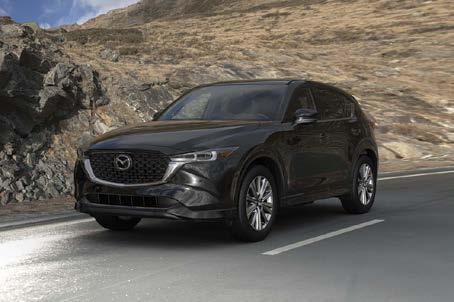
www.morriesmazda.com






Gerald Kia of Matteson Matteson
(708) 720-8972 (708) 720-0657 Fax
M, W, F 6am-5pm Tu, Th 6am-7pm; Sat 8am-2pm mattesonkiaparts@geraldauto.com www.geraldkiamatteson.com
Raymond Kia
Antioch
(847) 395-3600 (847) 838-7997 Fax
M-F 7am-6pm; Sat 7am-2pm kweber@raymondchevrolet.com
Midwest Kia
Wichita
(316) 652-2960
(316) 652-2992 Fax
M-F 8am-6pm; Sat 8am-2pm jjensen@midwestkia.com


Kia of Lansing
Lansing
(517) 393-5700
(517) 393-6767 Fax
M-F 7:30am-6pm mattr@lansingisyoung.com www.kiaoflansing.com
Seelye Kia of Kalamazoo
Kalamazoo
(269) 488-0614
M-F 7am-6pm gmeskil@seelye.com
MINNESOTA
Lupient Kia of Brooklyn Park
Brooklyn Park
(800) 569-5735
(763) 424-9437 (763) 424-4631 Fax
M-F 7am-6pm
Lou Fusz Kia
St. Louis
(877) 221-4151 (314) 595-4942 Fax
M, W, F 7am-8pm; Tu, Th 7am-6pm Sat 7:30am-4pm fuszkiaparts@fusz.com www.kia.fusz.com
Napleton’s Mid Rivers Kia St. Peters (888) 816-9729 (636) 926-0683 Fax
M-F 7am-6pm; Sat 7am-3pm bprinster@napleton.com pschnare@napleton.com www.midriverskia.com
Suntrup Kia
St. Louis (800) 727-8496 (314) 815-3060 Fax
M-F 7am-5pm
www.suntrupkiasouth.com
Kia of Fargo
Fargo
(800) 728-7601 (701) 282-5924 Fax
M-F 7am-5:30pm; Sat 8am-5pm
As more car buyers make the switch to battery electric vehicles (BEVs), traditional factors that are also important to buyers of gas-powered vehicles are becoming critical to satisfaction among BEV owners.
Quality and cost of ownership have emerged as the top factors influencing satisfaction, according to the J.D. Power 2024 U.S. Electric Vehicle Experience (EVX) Ownership Study. The study also revealed public charger availability not only remains the least satisfying aspect of owning a BEV, but also that the experience has become notably worse.
The BMW i4 ranks highest overall and among premium BEVs, while the MINI Cooper Electric is the highest-ranking mass market BEV for a second consecutive year. Both models rank highest in their respective segment on the strength of their performance in the vehicle quality and reliability factor. Each model scores more than 60 points (on a 1,000-point scale) higher than their respective nearest segment competitor for that factor.
“The increase in the EV share of the new-vehicle market, reflected by seven new rank-eligible models this
said Brent Gruber, executive director of the EV practice at J.D. Power. “Many products are hitting the mark and resonating with shoppers but, at the same time, the decline in satisfaction with public charging availability should serve as a warning because concern about access to public charging is a key reason many buyers currently reject BEVs. For EVs to reach their full potential, this issue needs to be resolved.”
deteriorating. Among mass market BEV owners, satisfaction with public charger availability is 32 points lower than a year ago. “The industry should view this lack of improvement as a critical issue that requires decisive action,” Gruber said.
Mass market BEVs deliver higher quality than premium BEVs: Owners of mass market brand BEVs experience fewer problems with their vehicle than do owners of premium
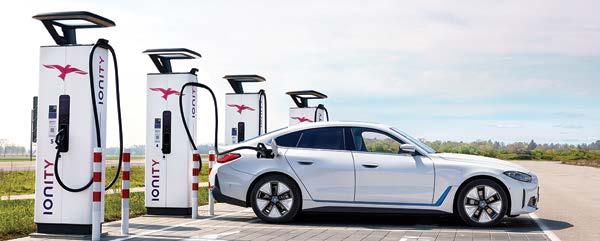
Key Findings
Public charging isn’t just bad –it’s getting worse: The study finds the public charging experience continues to be a major source of
BEVs. Eleven of the 14 ranked mass market models outperform the premium brand market average in total problems.
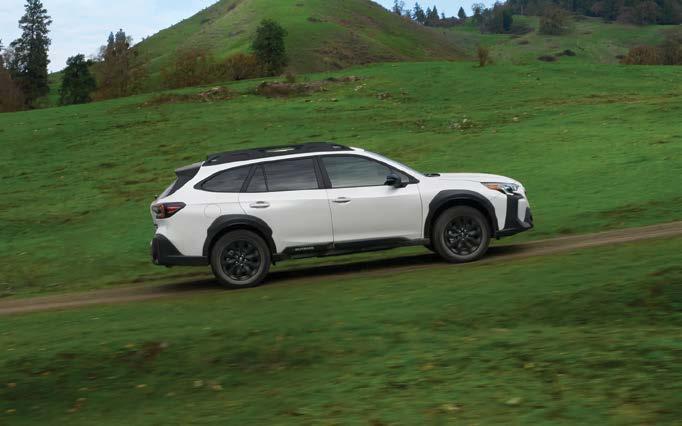


“Quality and reliability are the most important drivers of a positive EV ownership experience,” Gruber said.
Maple Hill Subaru
Kalamazoo (800) 323-0022
Direct (269) 978-0191 (269) 342-0065 Fax
Mon-Fri 8-5:30 www.maplehillauto.com
Luther Bloomington Subaru
Bloomington (800) 451-5078
Direct (952) 887-0600 (952) 881-1787 Fax
Mon 6:30-6; Tue-Fri 6:30-9; Sat 8-4 parts@bloomingtonsubaru.com www.bloomingtonsubaru.com
Morrie’s Brooklyn Park Subaru
Brooklyn Park (800) 343-6999 (763) 765-1462 (763) 765-1487 Fax
“As EVs extend to the broader market, minimizing problems will be key to meeting consumer expectations.”
First-time BEV owners are less satisfied than BEV veterans: Buyers new to BEV ownership are less satisfied than those who have previously owned a BEV. This year, the satisfaction gap between the two groups is 28 points, whereas a year ago, the gap was 14 points. Overall satisfaction among first-time BEV owners has declined 16 points from 2023. Battery range and public charging availability are the two factors in which the gap between previous BEV owners and new owners is greatest.
Most BEV owners say they’ll consider a BEV again, but first-time BEV owners may be more fickle: Firsttime BEV owners say they are open to considering non-BEVs in the future. However, almost half (48%) say they will consider a plug-in hybrid vehicle (PHEV) and 39% say they are willing to consider hybrid or internal combustion engine (ICE) vehicles. Meanwhile, 38% of previous BEV owners say they are willing to consider a PHEV and only 19% would consider a hybrid or ICE vehicle for their next purchase.
PHEVs might not present a good
Byers Airport Subaru
Columbus (614) 552-5490
Mon-Fri 7:30-6; Sat 8-12 wholesaleparts@byersauto.com
Ken Ganley Subaru North Olmsted North Olmsted (440) 788-7060 jtjoyce@ganleywestside.com
Mon-Fri 7:30-6 Sat 8-5
Mon-Fri 7-7; Sat 8-5 bpsubaruparts@morries.com www.brooklynparksubaru.com
alternative to BEVs: Recently, news reports have suggested that plug-in hybrid vehicles could solve many of the issues plaguing BEVs, such as range limitations and lack of public charging availability. However, this year’s study finds that owners of PHEVs are, on the whole, much less satisfied with their vehicle than are owners of BEVs. Overall satisfaction with PHEVs is 629, while mass market BEVs (718) and premium BEVs (750) score much higher.
“Plug-in hybrids may not be the simple solution to solving early issues with full battery electric vehicles,” Gruber said. “Expected lower running costs is a top purchase reason for EVs but satisfaction with the cost of ownership is much lower for plug-in hybrids. Plug-in hybrids retain the costs of maintaining a traditional powertrain yet without the benefit of the extended electric driving range found in full battery electric vehicles.”
BMW i4 ranks highest overall and highest in the premium BEV segment with a score of 800. Rivian R1T (789) ranks second and Rivian R1S (778) ranks third.
MINI Cooper Electric ranks highest in the mass market BEV segment for a second consecutive year, with a score of 770. Ford Mustang Mach-E (764)
ranks second and Hyundai IONIQ 6 (759) ranks third.
The number of award-eligible models in the premium segment has grown from five to eight year over year. Award-eligible mass market models have increased from 10 to 14. Satisfaction among owners of premium EVs averages 750, while satisfaction among mass market EV owners averages 718.
The U.S. Electric Vehicle Experience (EVX) Ownership Study, now in its fourth year, focuses on the crucial first year of ownership. The overall EVX ownership index score measures electric vehicle owner satisfaction in both premium and mass market segments. The 2024 study includes 10 factors (in alphabetical order): accuracy of stated battery range; availability of public charging stations; battery range; cost of ownership; driving enjoyment; ease of charging at home; interior and exterior styling; safety and technology features; service experience; and vehicle quality and reliability.
The study is conducted in collaboration with PlugShare, an EV driver app maker and research firm.
Survey respondents for the 2024 study include 4,650 owners of 2023 and 2024 model-year BEVs and PHEVs. The study was fielded from August through December 2023.
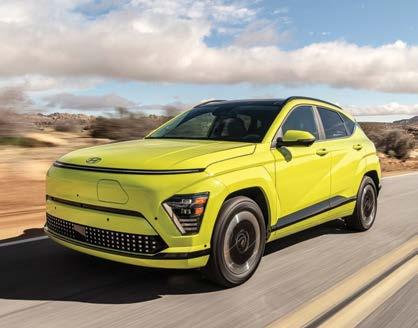


Since joining Driven Brands in January 2022, Auto Glass Now has been rebranding all of the acquired locations under its name and refreshing the locations with bright, welcoming customer service lobbies and the latest tools and equipment. Each Auto Glass Now location has a team of highly trained experts in auto glass repair, replacement and Advanced Driver Assistance Systems (ADAS) calibration.
Auto Glass Now, with a history spanning more than three decades, now has more than 200 physical locations and more than 700 mobile units, due to strategic acquisitions and a series of new openings, making Auto Glass Now one of the fastest-growing entities in the sector.
Each Auto Glass Now location has a team of specialists proficient in a wide range of services, ensuring customers receive toptier service, irrespective of their auto glass needs.
“Drivers want a national brand they can trust for high-quality, reliable auto glass repair, no matter where they travel, along
with a national warranty to protect their repairs,” said Nick Ouimet, president of Auto Glass Now.
“Now, whether they move to a new city, go on a road trip or have an incident on their daily drive to work, they can rely on having an Auto Glass Now location or mobile service nearby to repair their damage and replace their windshield.”
Now part of the Auto Glass Now family, brands previously known as All-Star Glass, Horizon Auto Glass, A1 Auto Glass, Auto Glass Fitters and Discount Auto Glass have been rebranded and remodeled to Auto Glass Now’s brand identity.
“Auto Glass Now continues to grow and polish our customer experience by making auto glass servicing increasingly fast, reliable and convenient,” said Ouimet. “We’re proud to continue the legacy of our local experts to build a respected nationwide brand. Through our national network, Auto Glass Now delivers the kind of scale and efficiency that only a nationwide company can offer.”
Co-President & Publisher
Nathan Gregory
Co-President & Publisher
Paul Stepanek
Editor
Abby Andrews
Contributing Writers
Mike Anderson,Stacey Phillips, John Yoswick, Cole Strandberg
Advertising Sales
Joe Momber, Norman Morano, Steve Sklenar
Office Manager
Kelly Cashman
Digital Marketing Manager
Bryan Malinski
Art Director
Rodolfo Garcia
Senior Designer
Vicki Sitarz
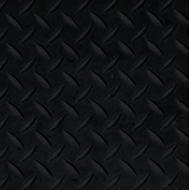

Accounting & HR Manager
Heather Priddy
Permissions Editor Randi Scholtes
Serving Illinois, Iowa, Indiana, Kansas, Kentucky, Michigan, Minnesota, Missouri, Nebraska, North Dakota, Ohio, South Dakota, Wisconsin and adjacent metro areas. Autobody News is a monthly publication for the autobody industry. Permission to reproduce in any form the material published in Autobody News must be obtained in writing from the publisher.
©2024 Autobody News, LLC.
Autobody News
P.O. Box 1516 Carlsbad, CA 92018 (800) 699-8251 (760) 603-3229 Fax
www.autobodynews.com
editor@autobodynews.com
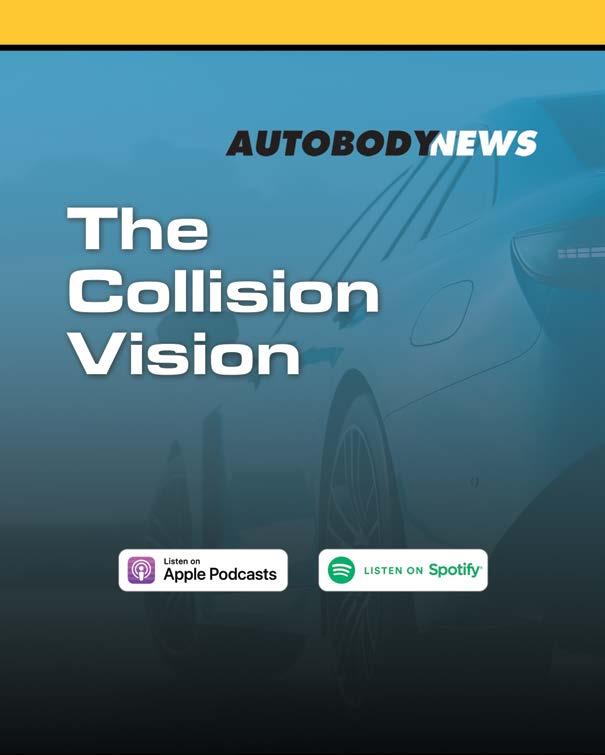
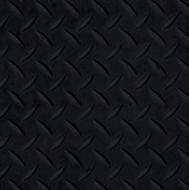
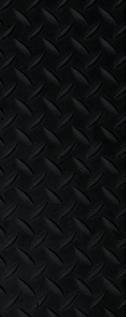

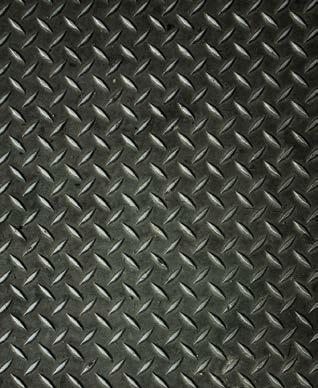

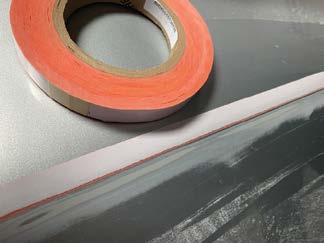
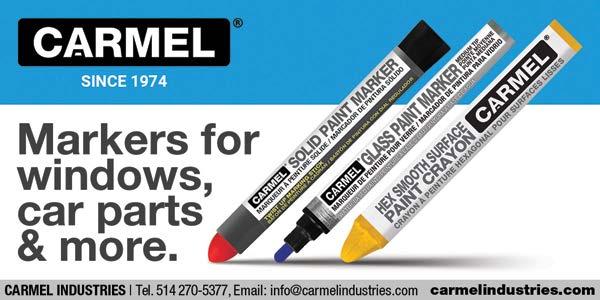
AirPro Diagnostics has been officially selected by BMW North America as the approved provider of the Integrated Services Technical Application (ISTA) software, a crucial tool in the BMW Collision Repair Network’s arsenal.
The integration of ISTA software with AirPro’s diagnostic services allows technicians to access detailed vehicle information, diagnostic procedures and BMW’s precise repair instructions. This ensures repairs meet the manufacturer’s standards, leading to improved diagnostic workflows, increased repair accuracy and ultimately, higher customer satisfaction.
AirPro Diagnostics stands out in the industry for its cost-effective scanning and ADAS calibration solutions, including the innovative AUGGIE device.
For more information, visit www. airprodiagnostics.com.
A recent report by Mitchell, an Enlyte company, showed a sharp increase in electric vehicle collision claims in the U.S. and Canada. A year-over-year analysis in “Plugged-In: EV Collision Insights” revealed a more than 40% surge in EV claims volume in 2023.
“2023 was a record year for electric vehicles,” said Ryan Mandell, Mitchell’s director of claims performance. “Not only did the frequency of EV collision claims rise to historic levels, but the U.S. also surpassed 1.2 million in new EV sales for the first time ever. As long as consumer adoption remains strong, EVs will continue to have a significant impact on the auto insurance industry – creating challenges for everything from underwriting to the delivery of proper and safe repairs.”
In addition to tracking 2023 claims volume, the Mitchell report compares EVs to automobiles with an internal combustion engine (ICE), highlighting differences in:
Claims severity: Last year, average severity in the U.S. for repairable EVs was $6,018 compared to $4,696
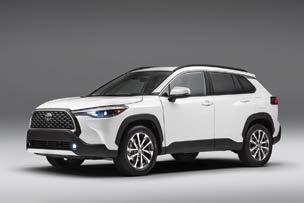
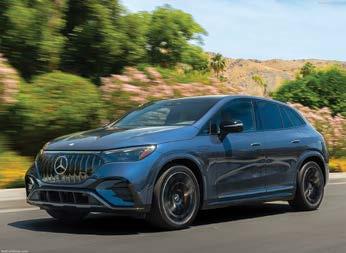
The
651-490-2652 Fax
M-Thu
www
800-368-2335
502-893-4704
502-894-6823
M-F
for ICE alternatives, a difference of $1,322. This represents a yearover-year decrease of 5% for EVs and an increase of 3% for ICE vehicles. In Canada, severity was $6,795 for EVs versus $5,122 for
ICE-powered options, jumping 8% from 2022 to 2023.
“2023 was a record year for electric vehicles.
Not
only did the frequency
of EV collision
claims
rise to historic levels, but the U.S.
also surpassed
1.2 million in new EV sales
for
the first time ever.
As long as consumer adoption remains strong, EVs will continue to have a significant impact on the auto insurance industry – creating challenges for everything from underwriting to the delivery of proper and safe repairs.”
— RYAN MANDELL MITCHELL’S DIRECTOR OF CLAIMS PERFORMANCE

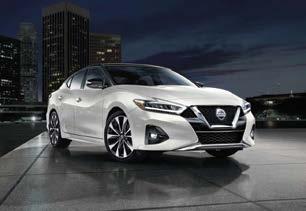
Vehicle complexity: For 2020 and newer collision-damaged automobiles, EV repairs were 50% more likely to include an operation associated with the sensors used in advanced driver assistance systems (ADAS) based on 2023 data than ICE vehicles – which also rely on ADAS.
Parts repairability: EVs are more likely to use parts made of lightweight materials, which can impact repairability. In 2023, on average only 12% of EV parts were repaired versus replaced. For ICEpowered options, the percentage of parts repaired was closer to 15%.
Material construction: EVs tend to be heavier than ICE automobiles due to the battery weight. That may be one reason why they had a higher frequency of air bag deployments (3.62%) than ICE options (2.45%) last year, adding to repair costs.
The publication also details the top North American regions and vehicle models associated with EV collision claims in 2023.

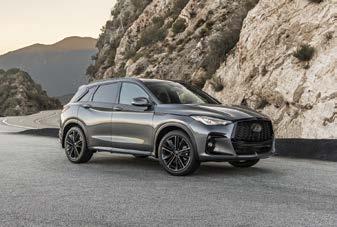
com www geraldnissanmatteson com INDIANA
